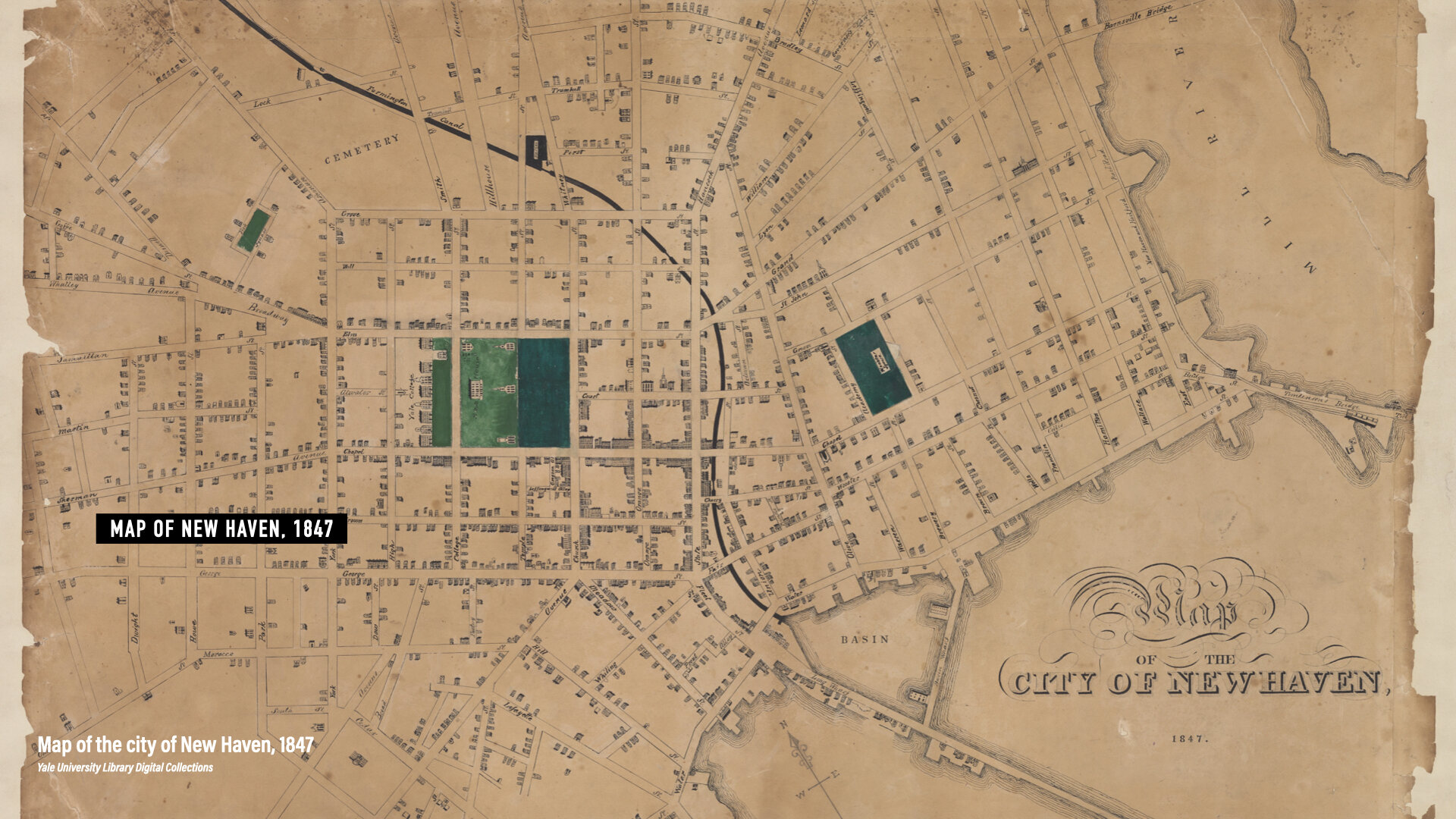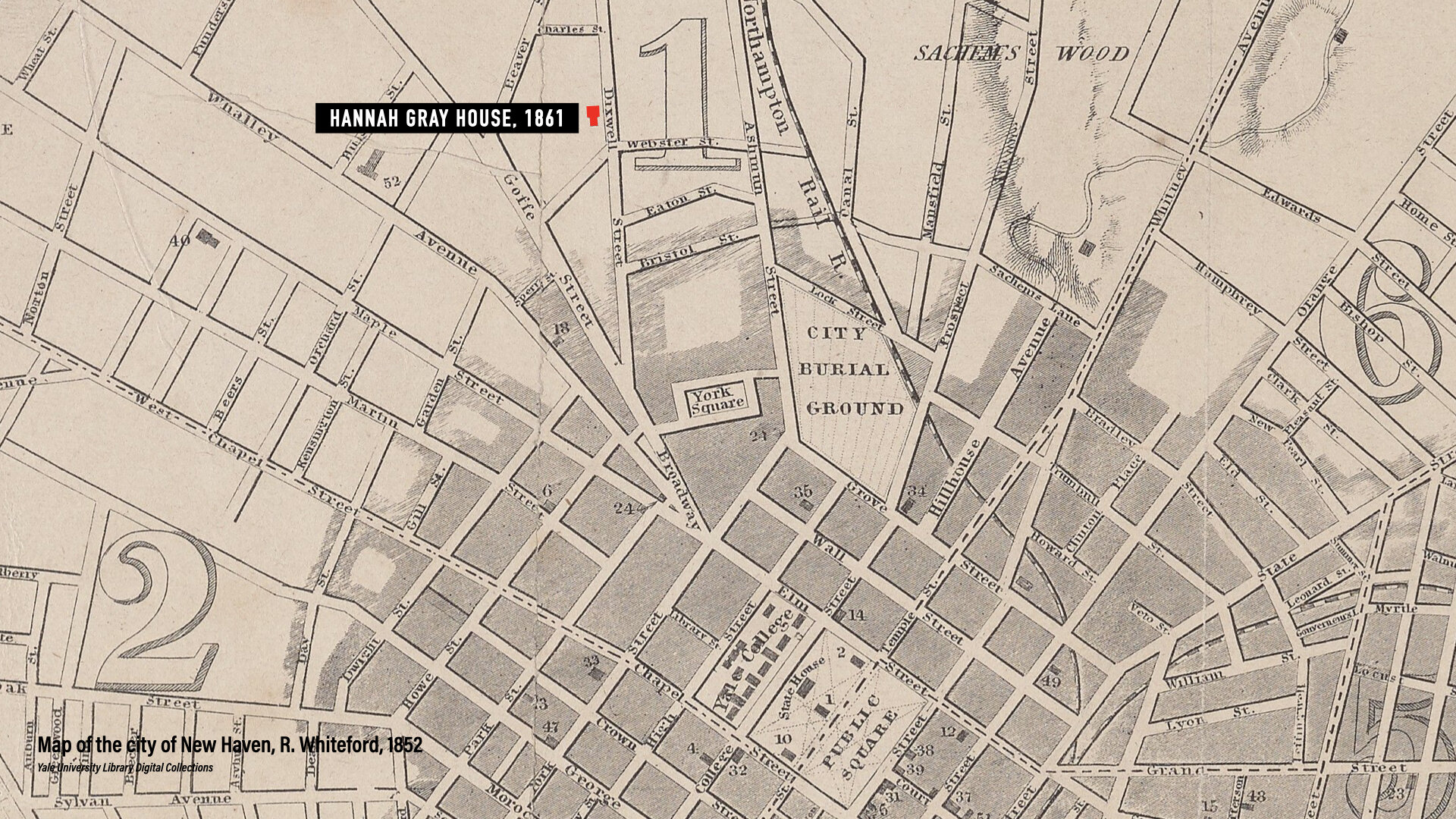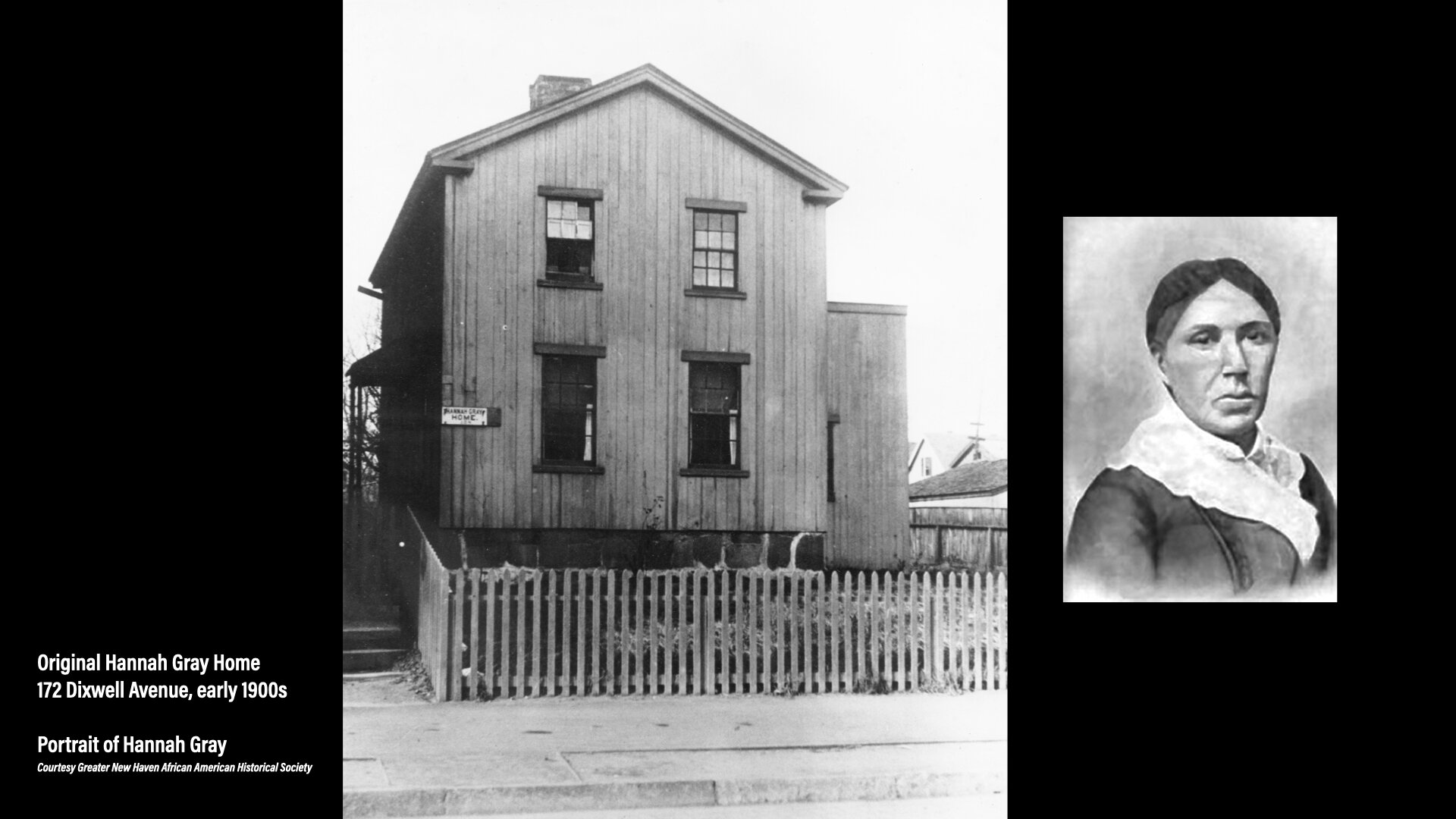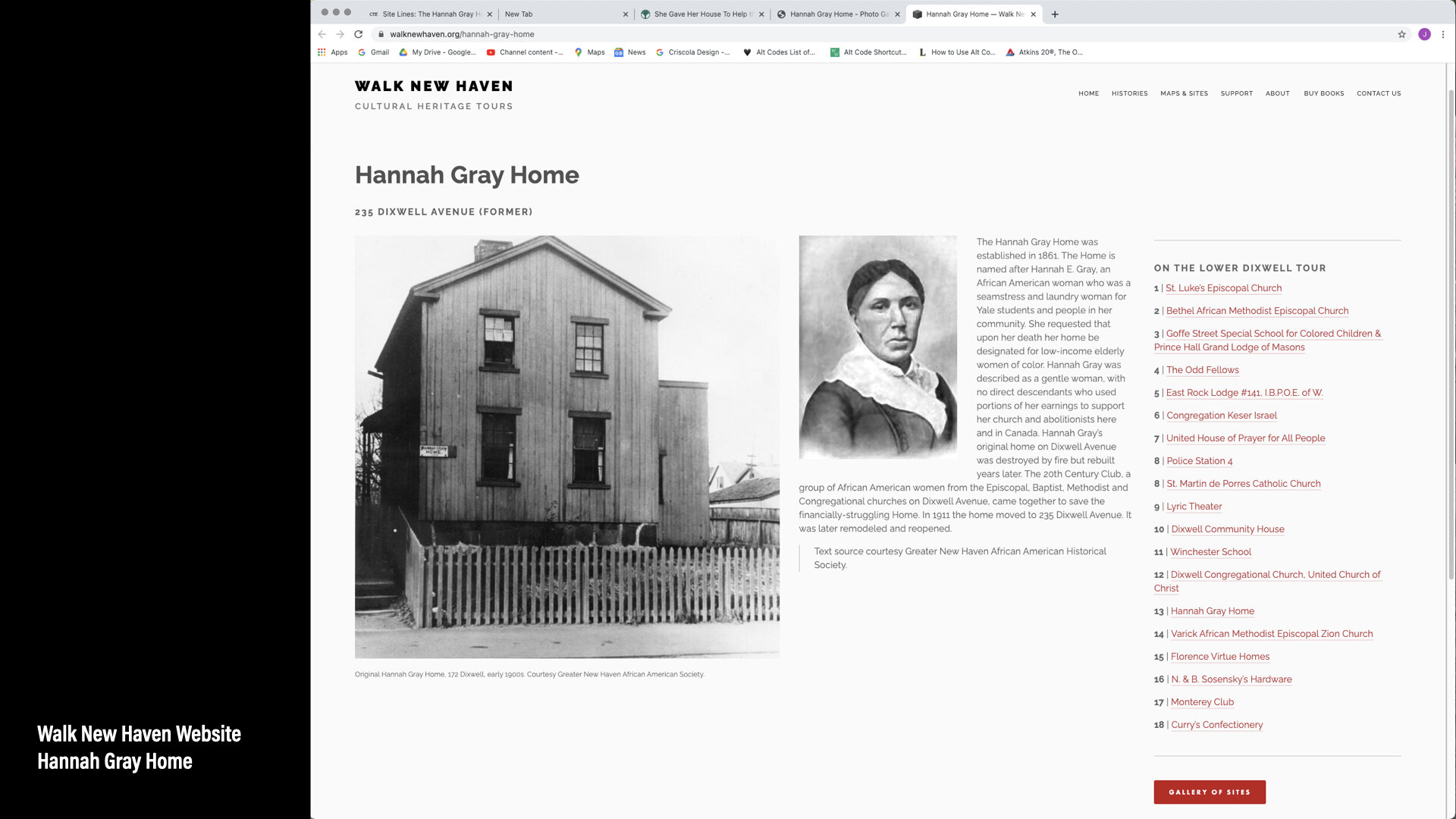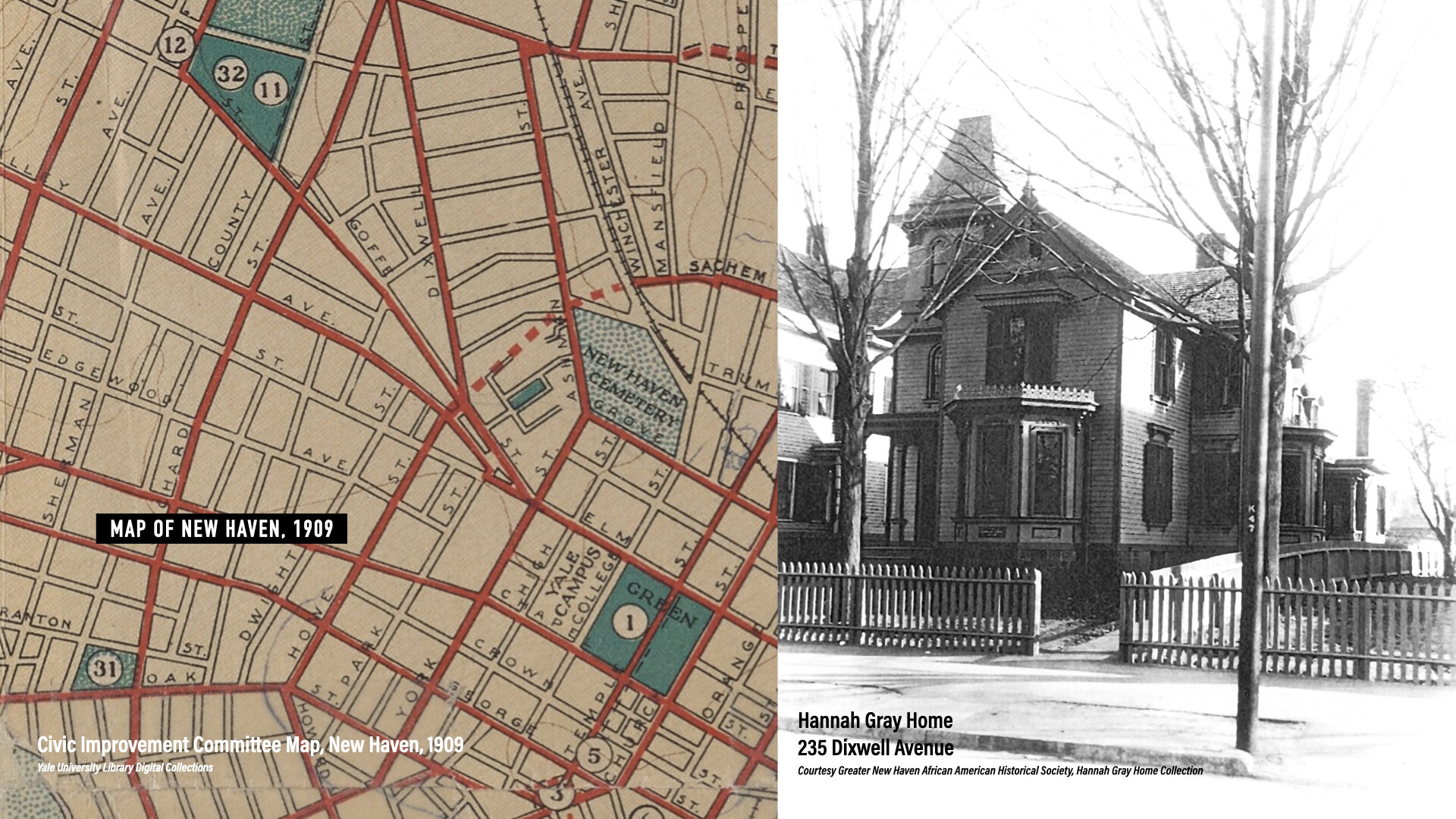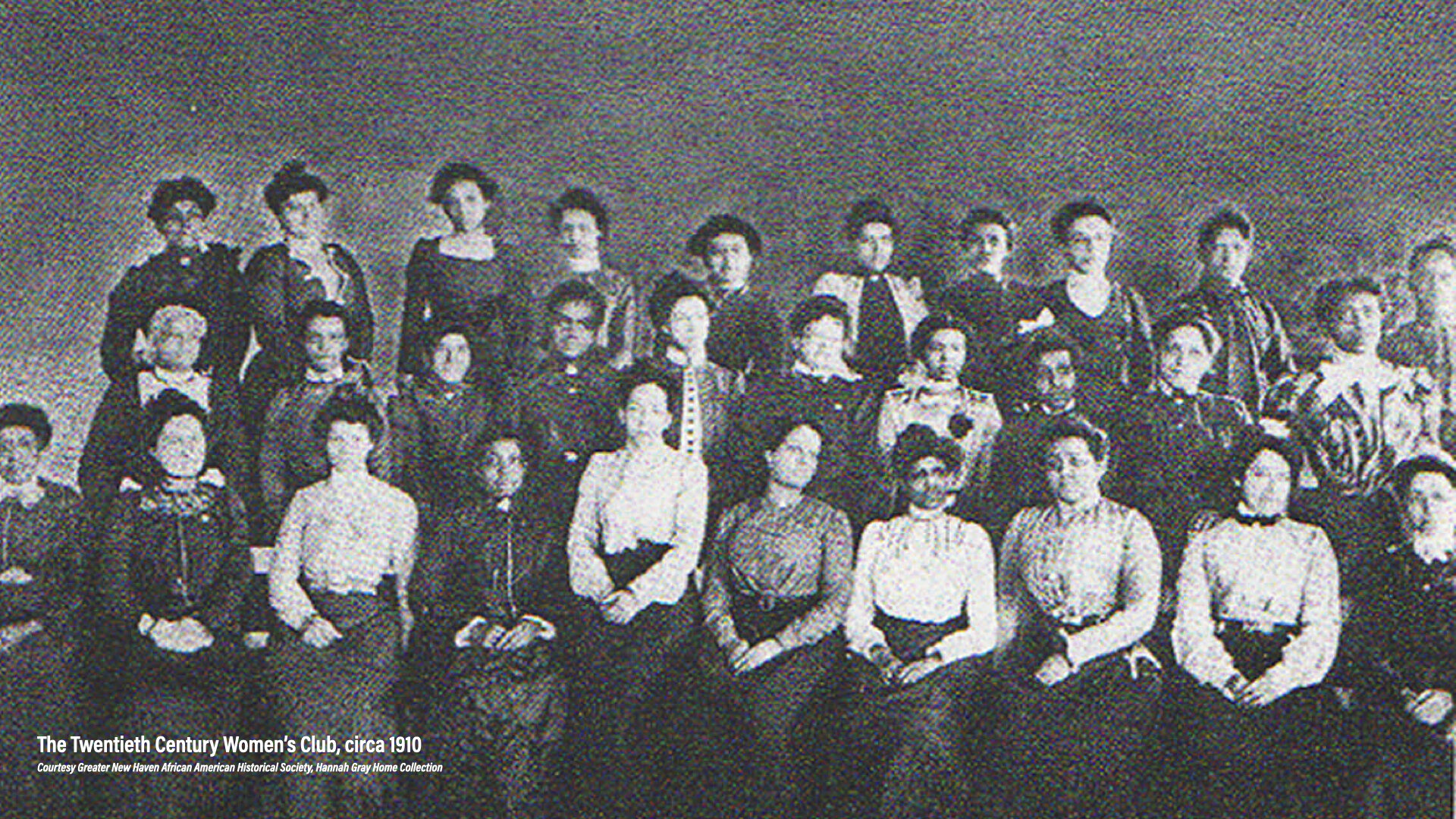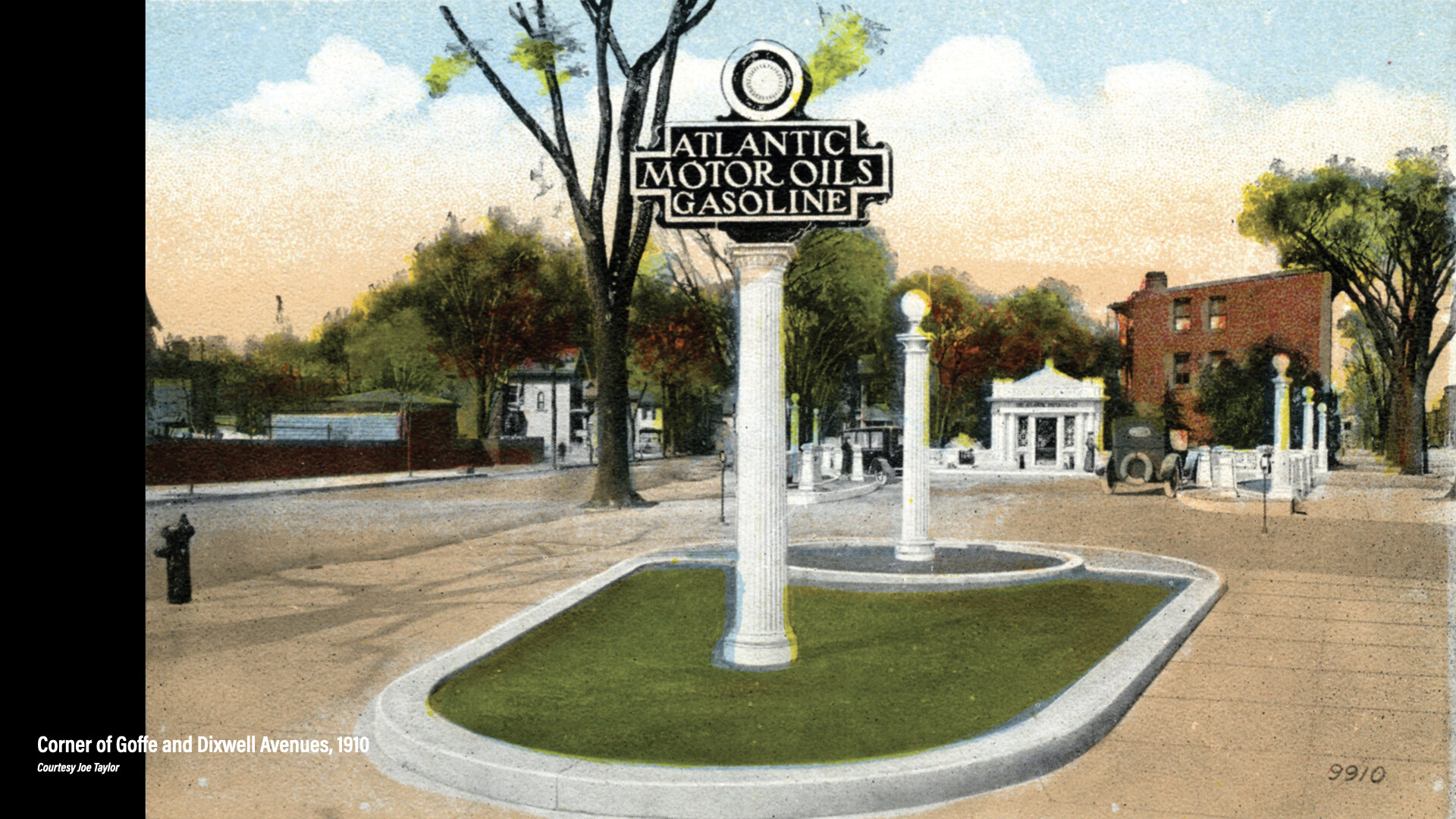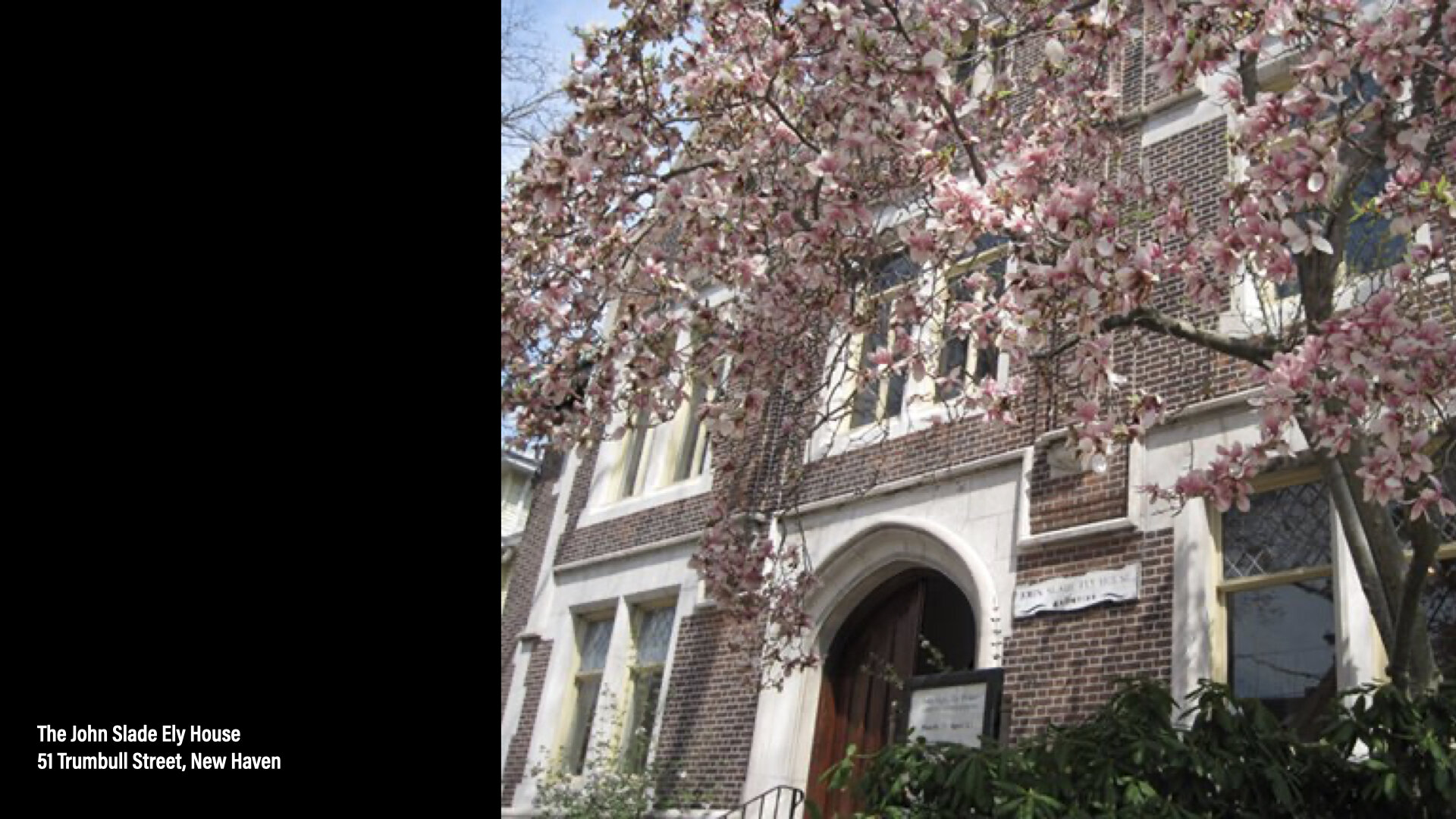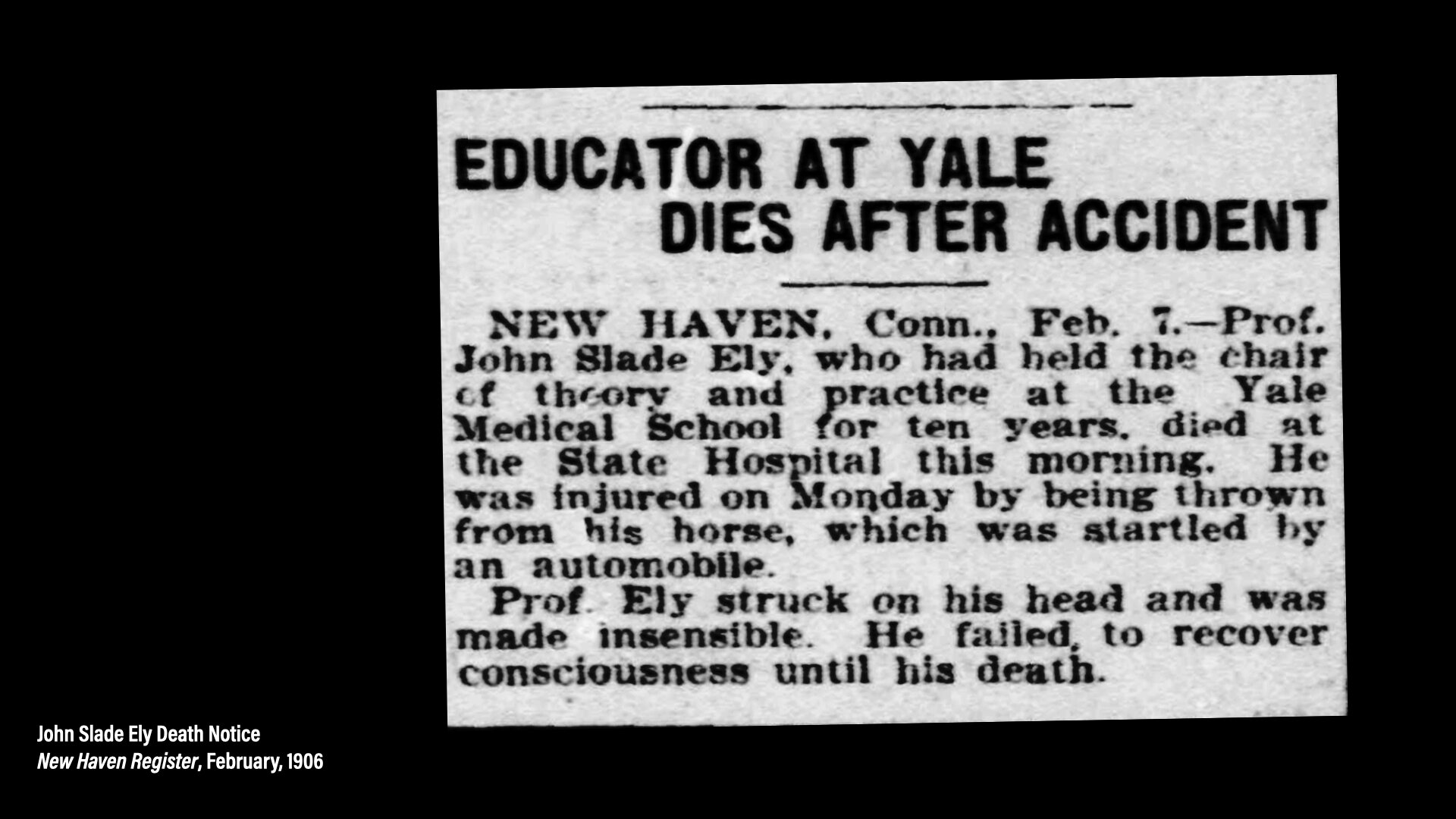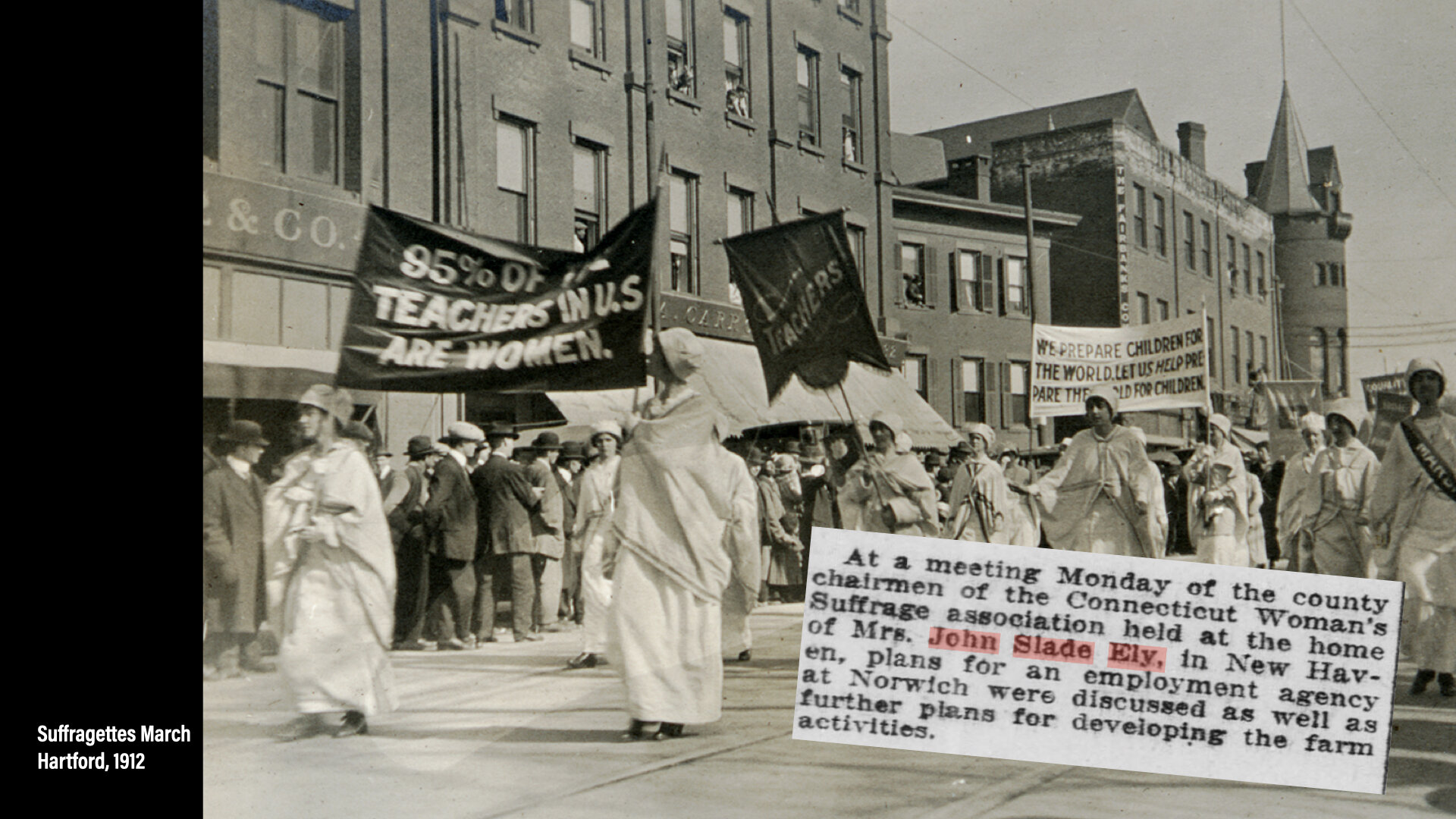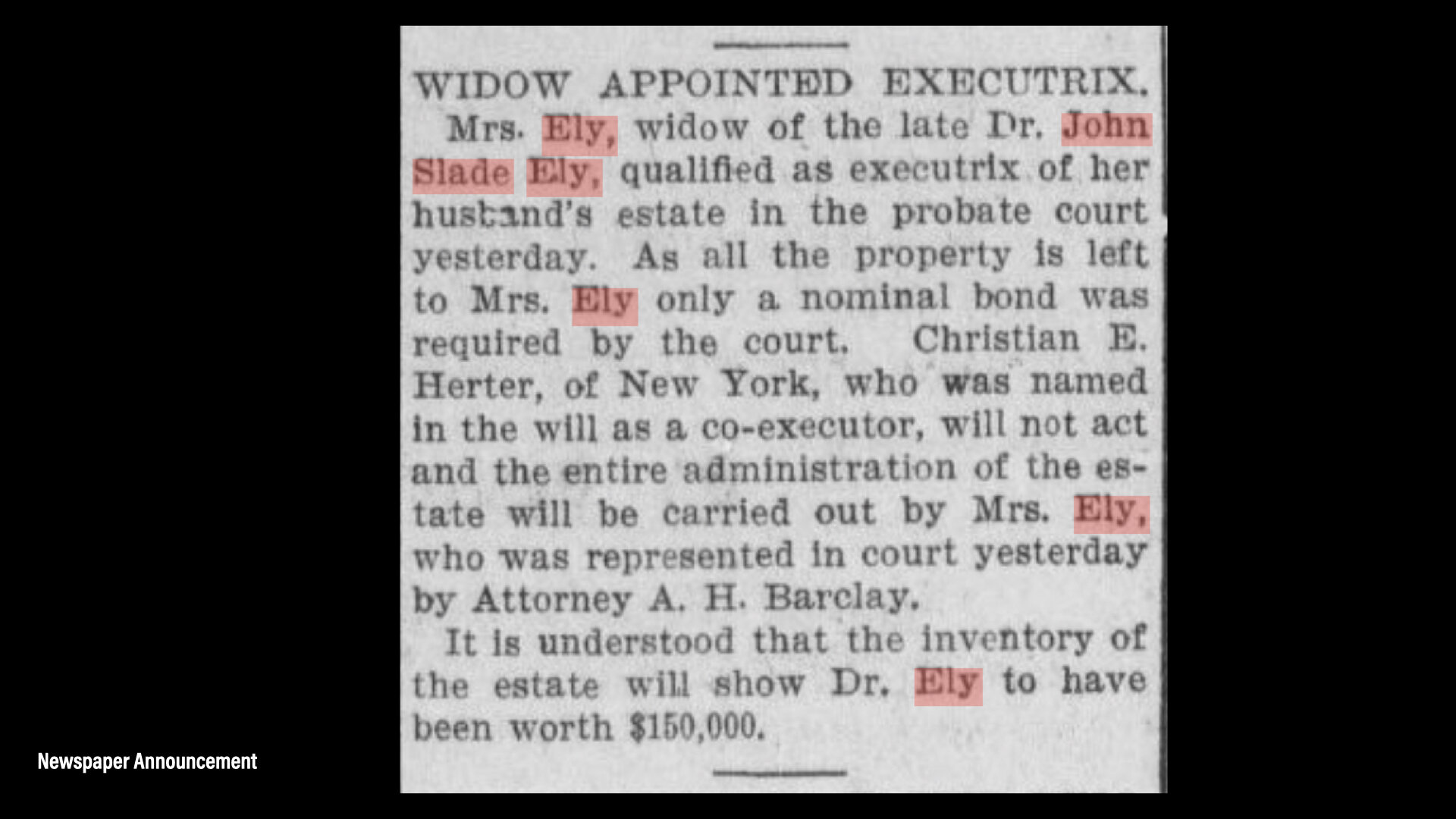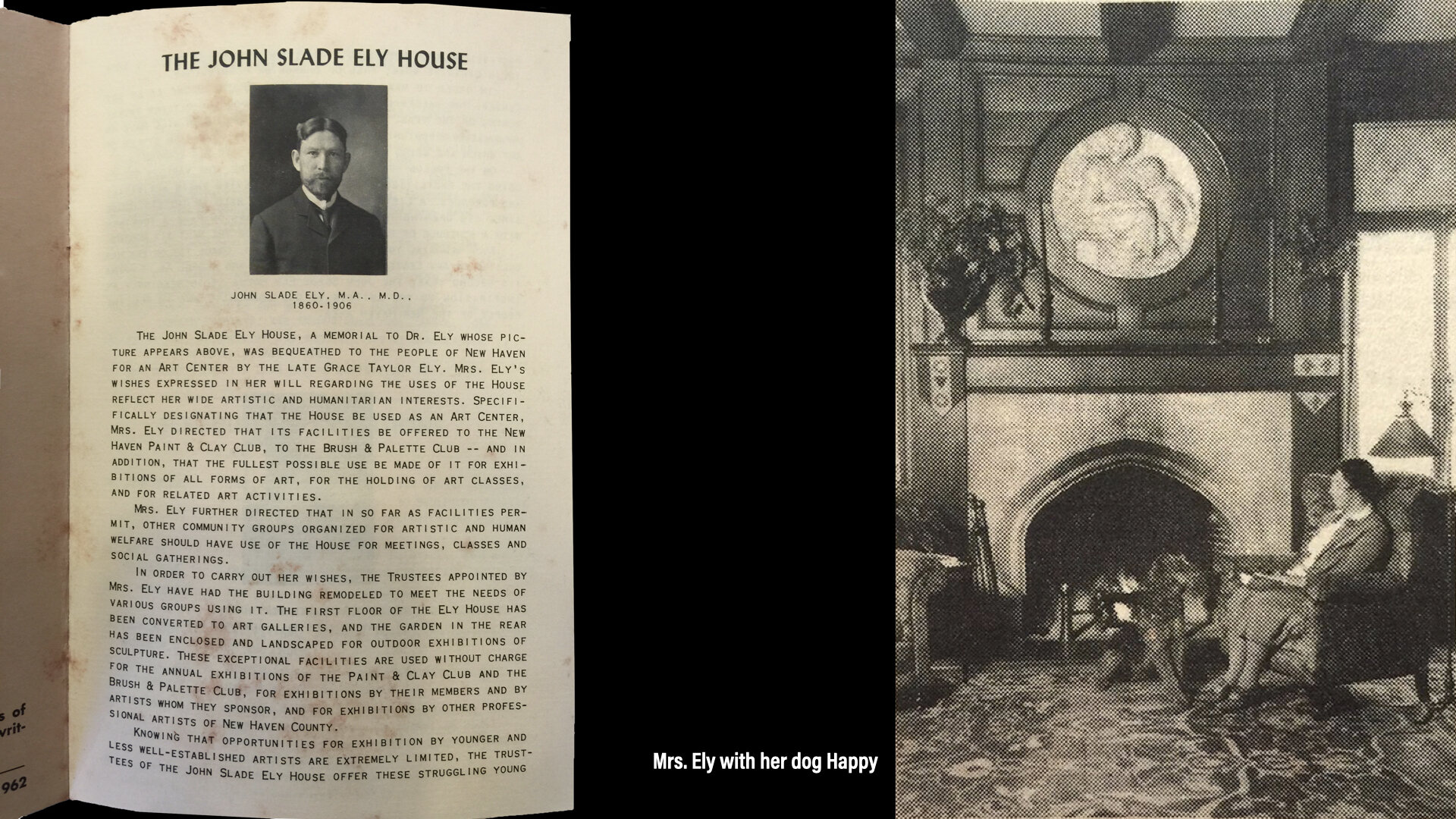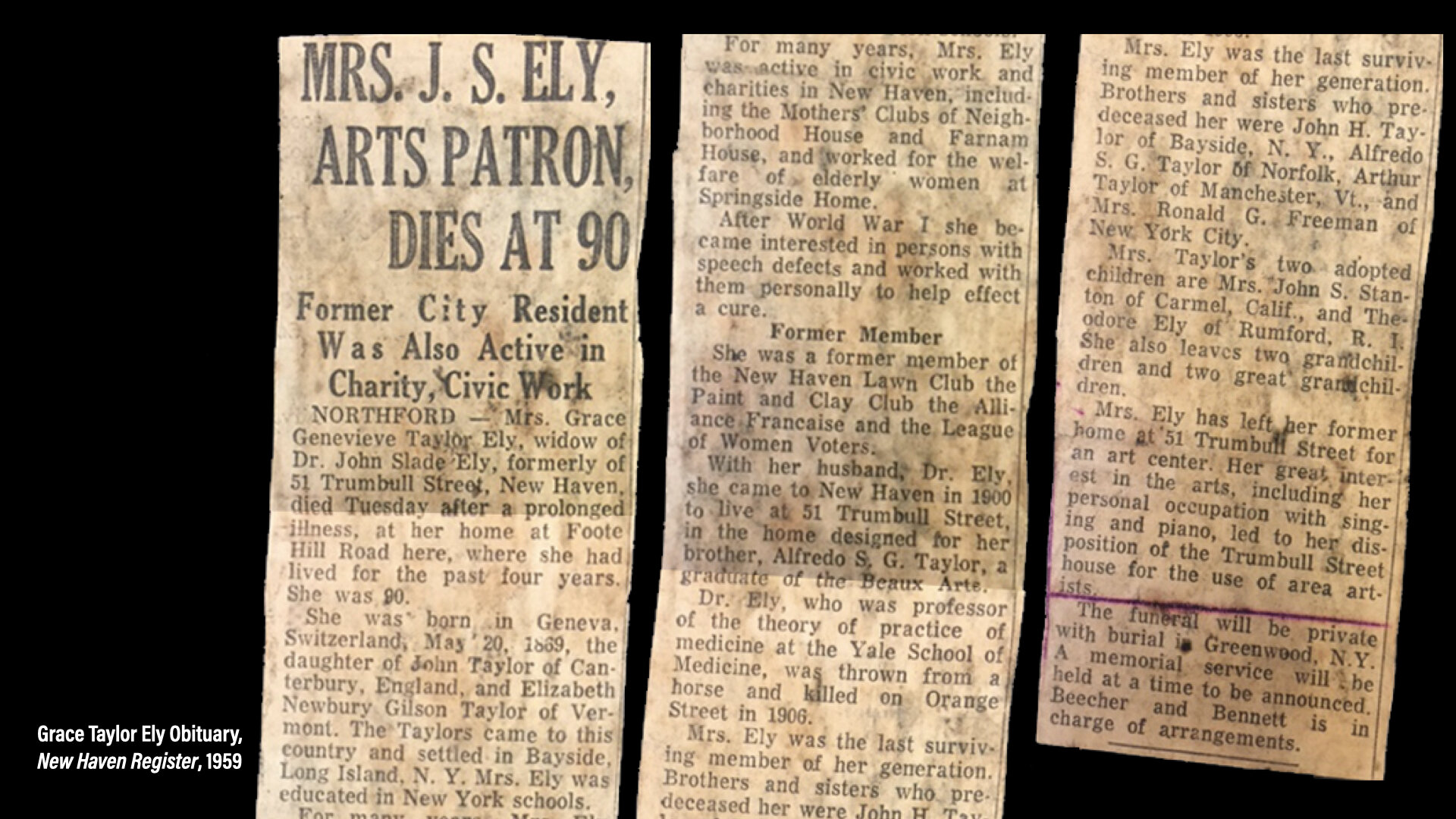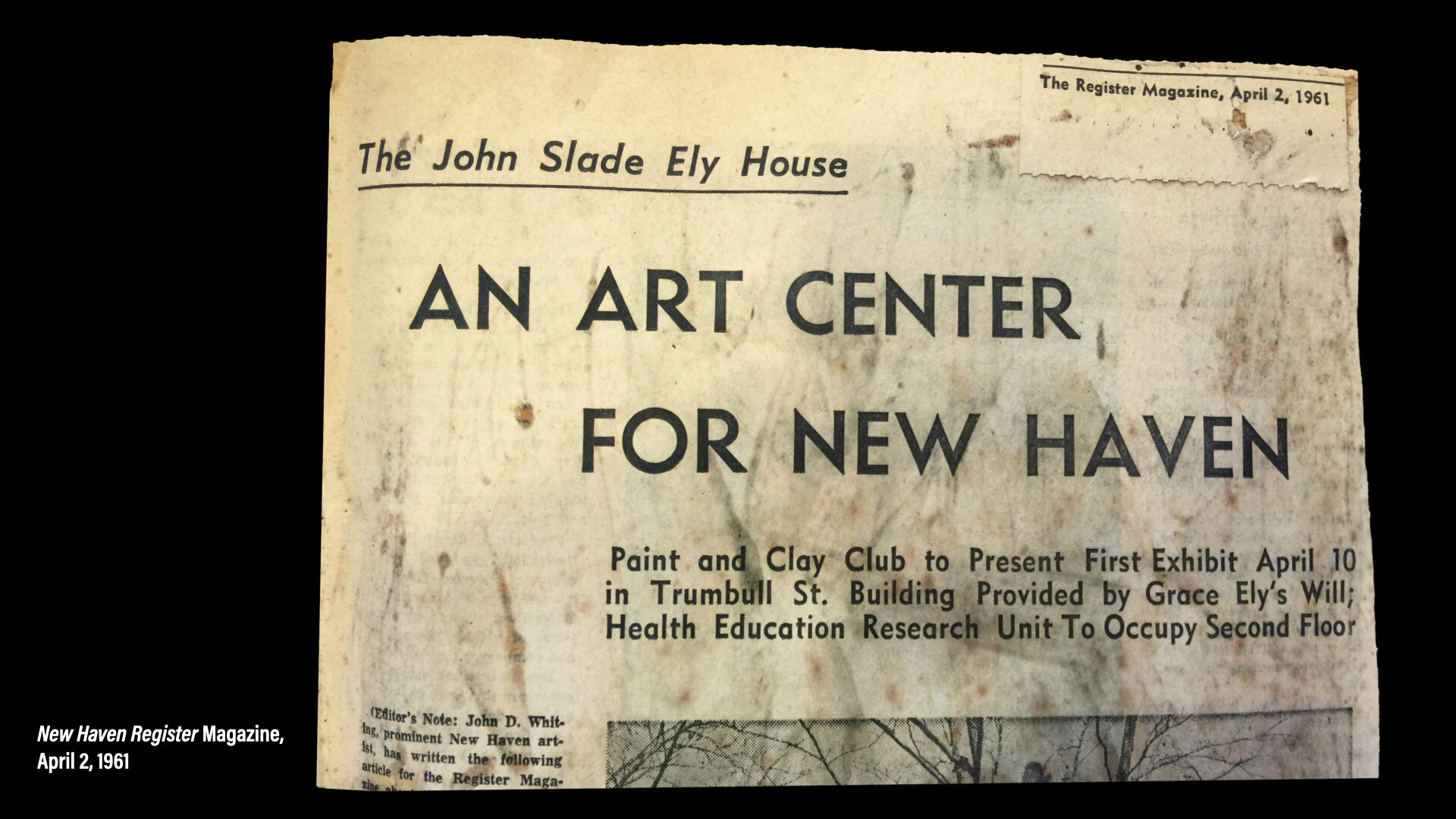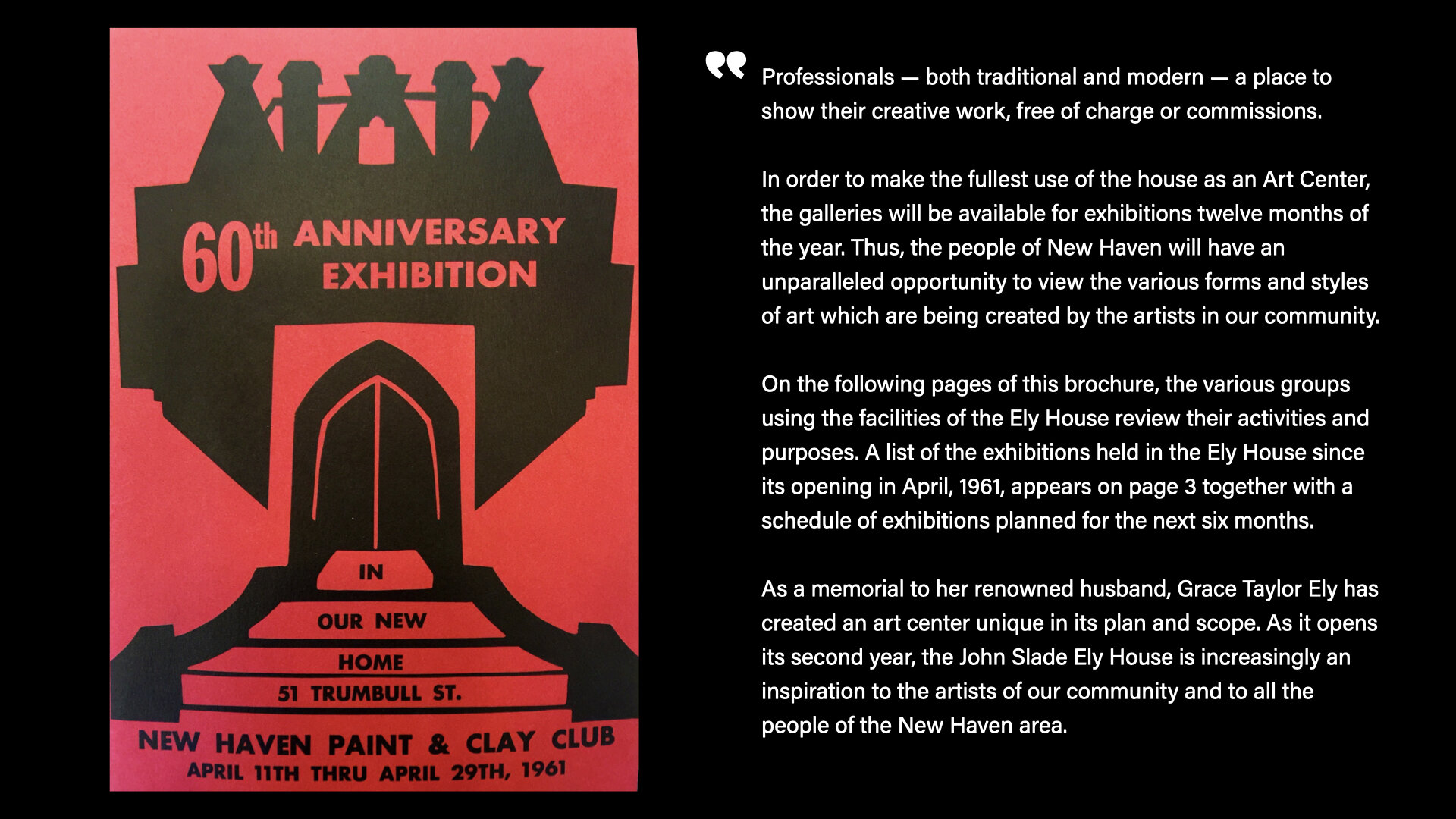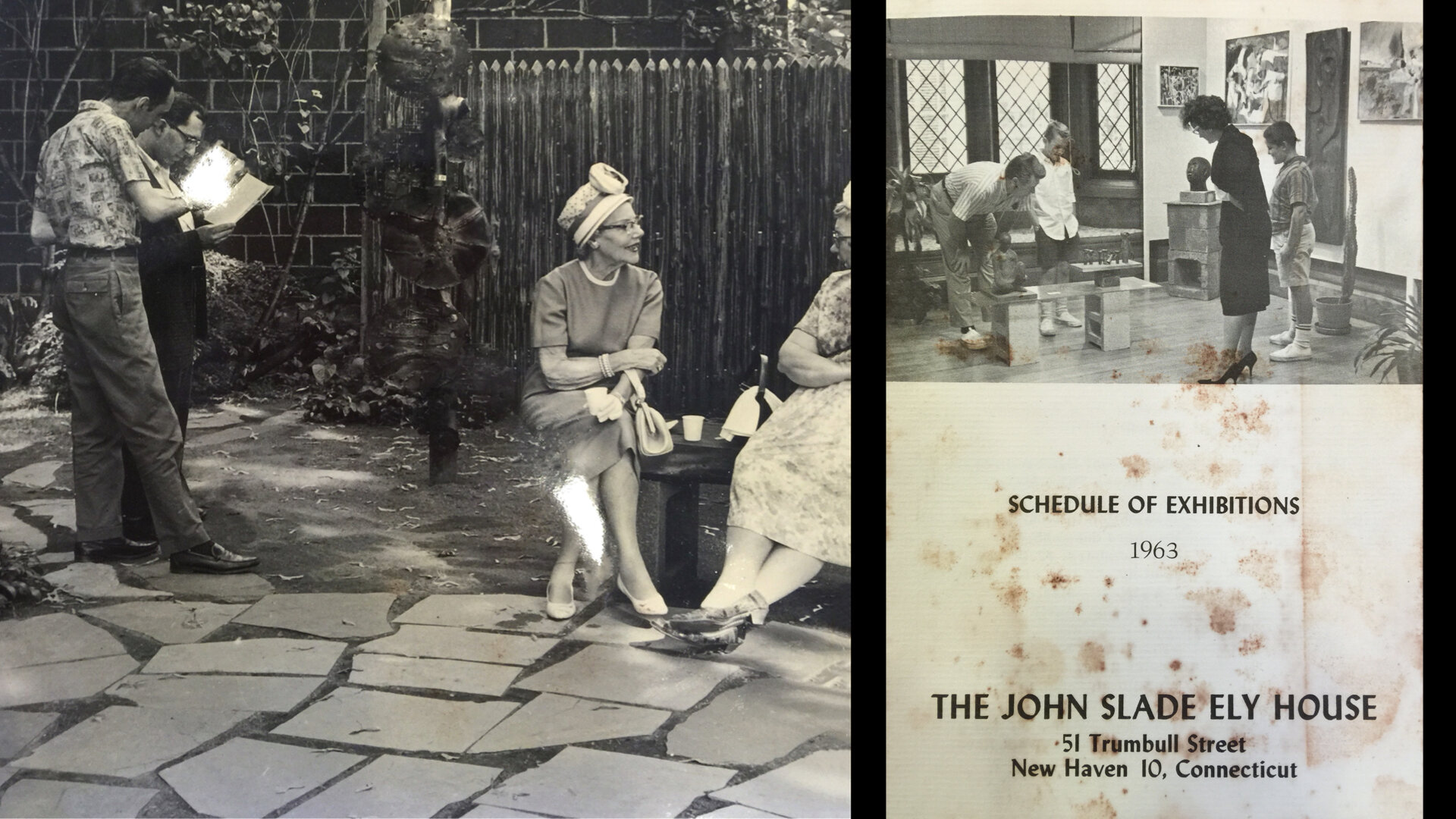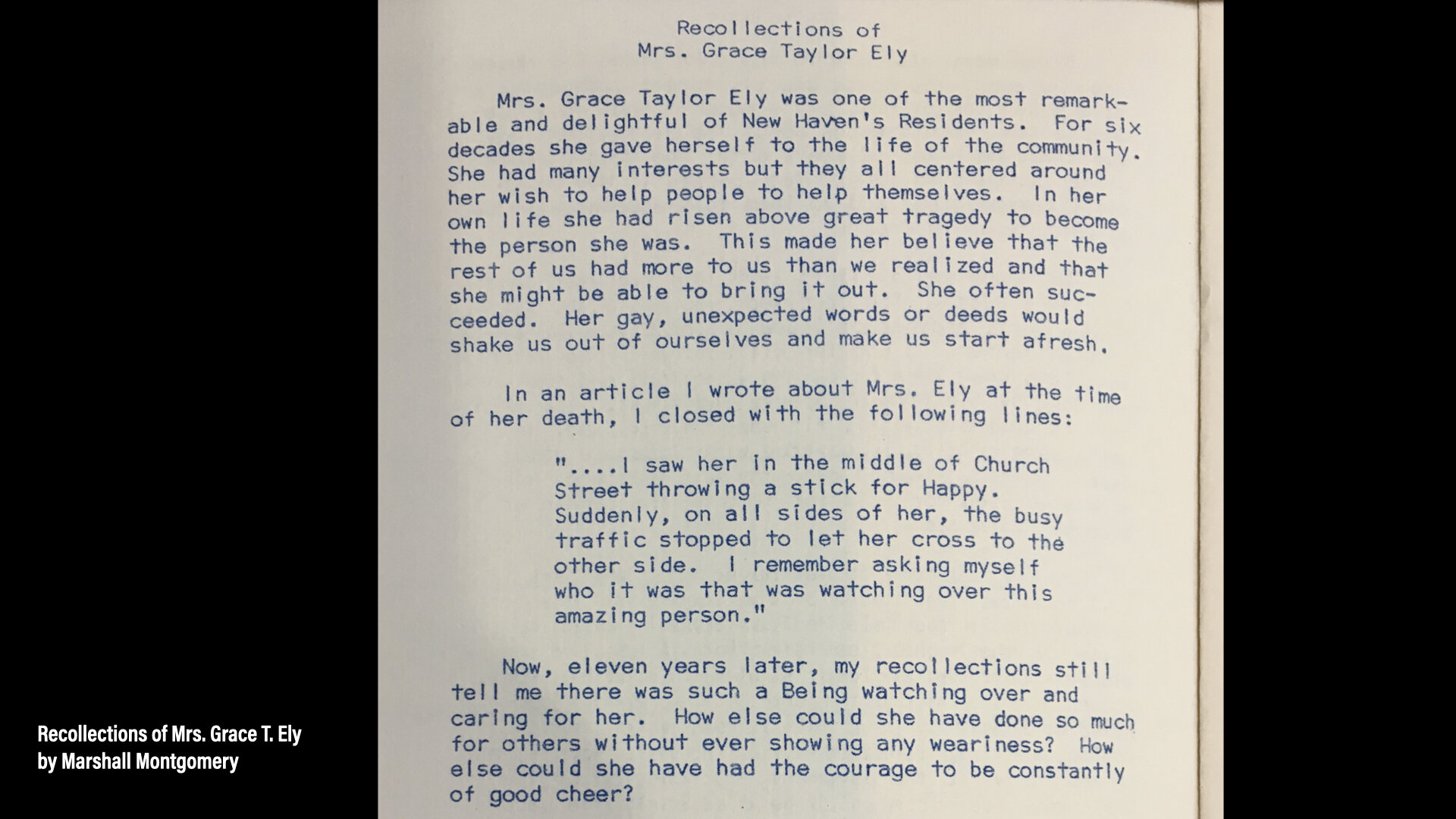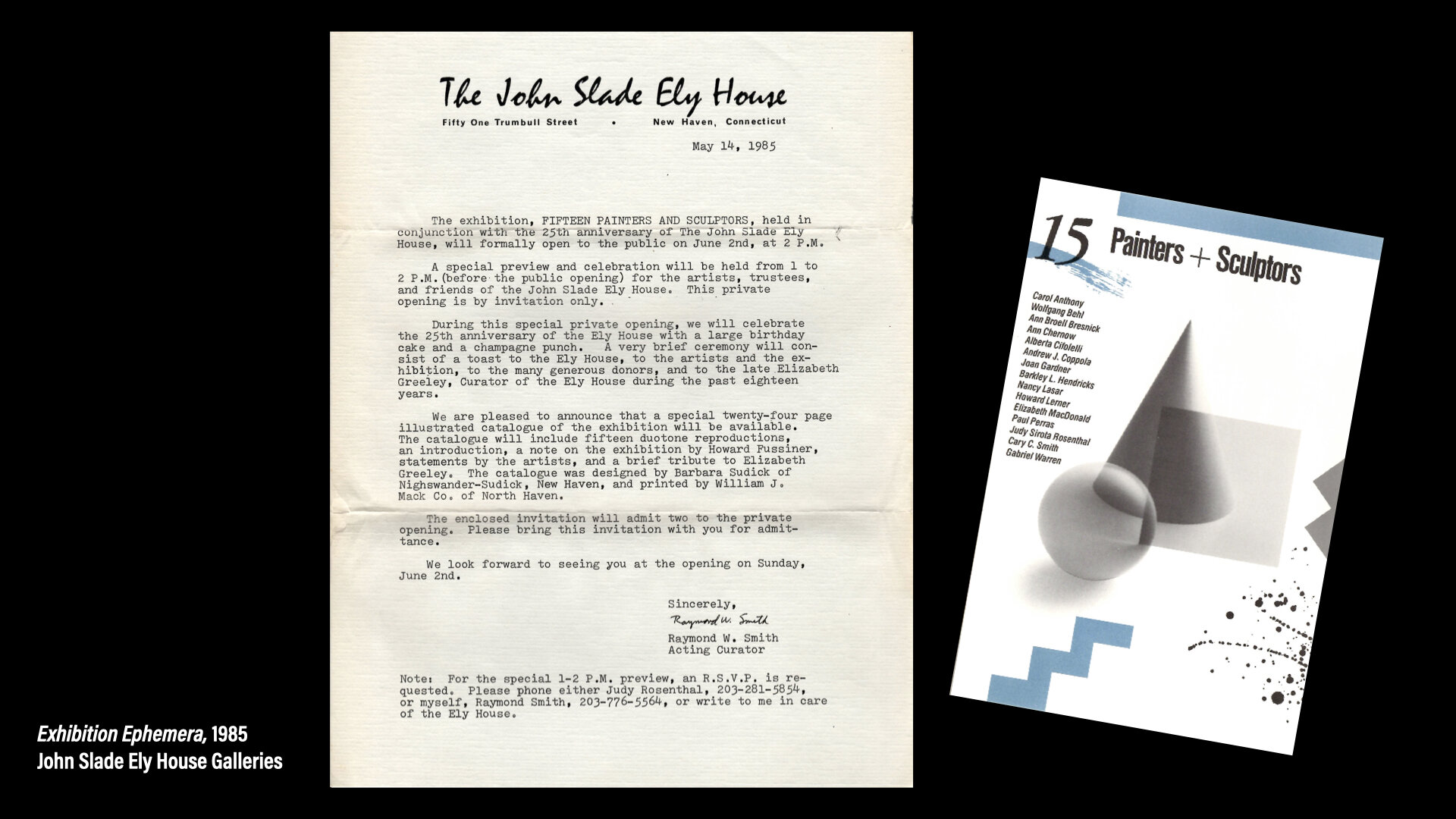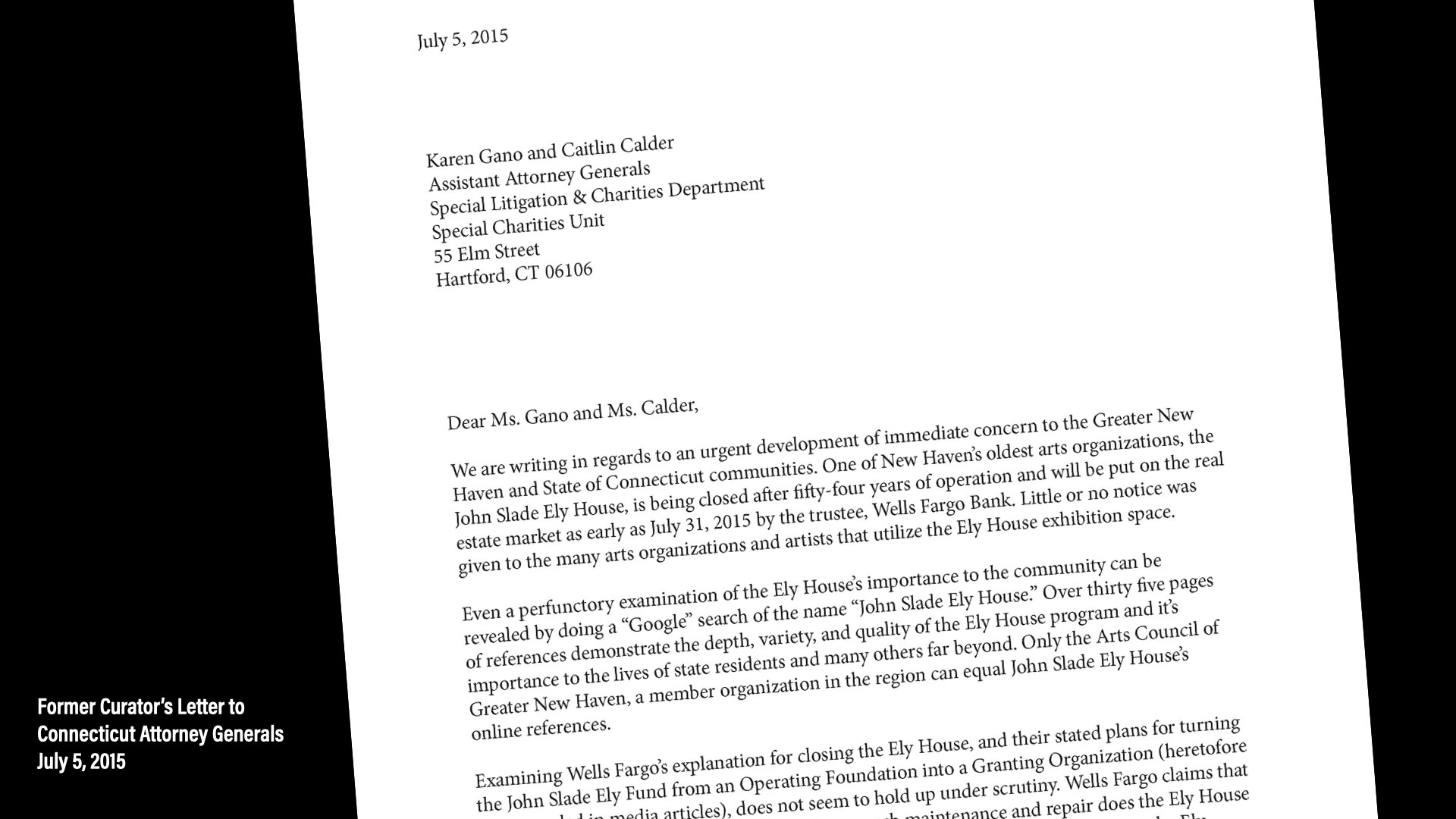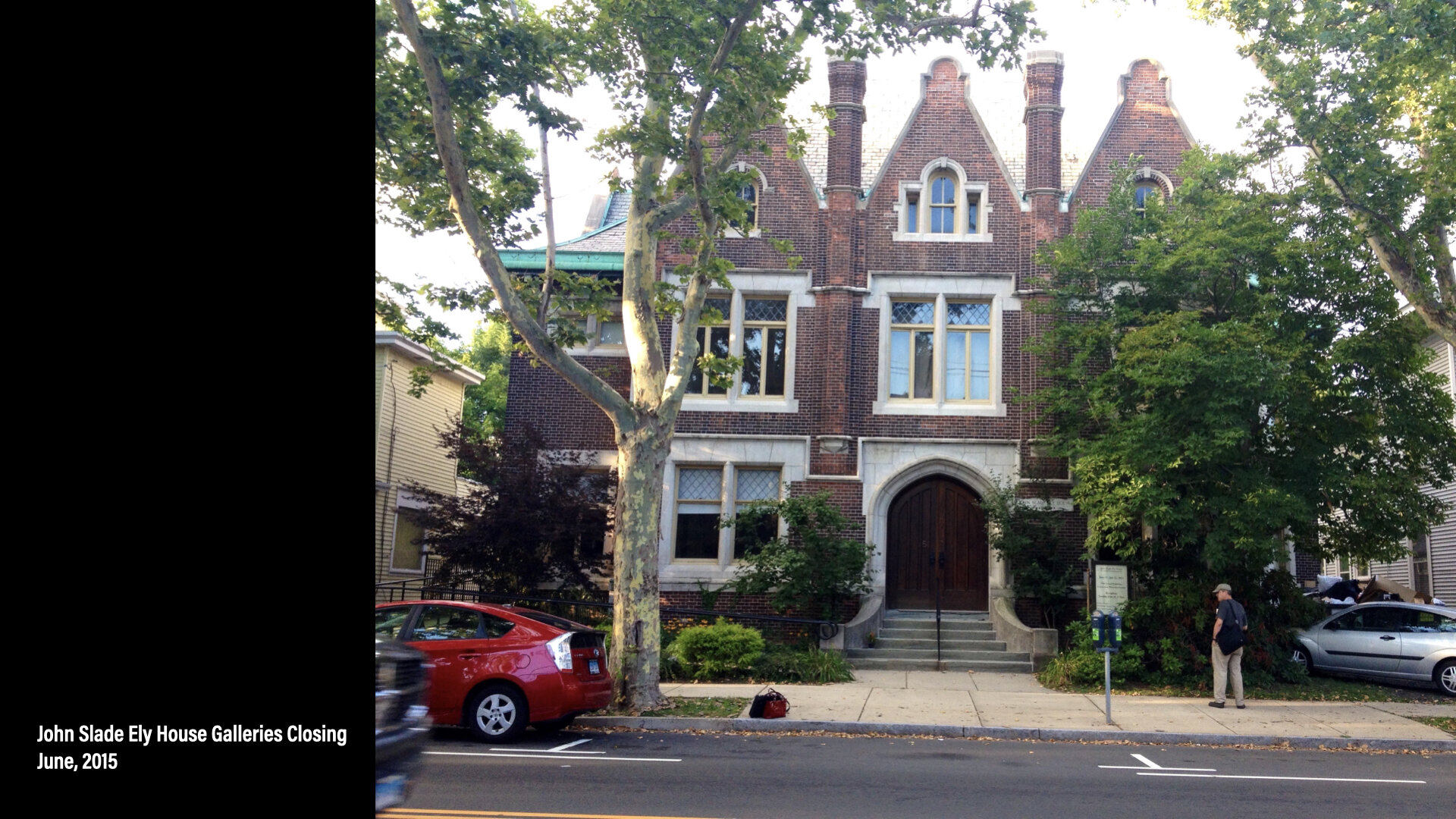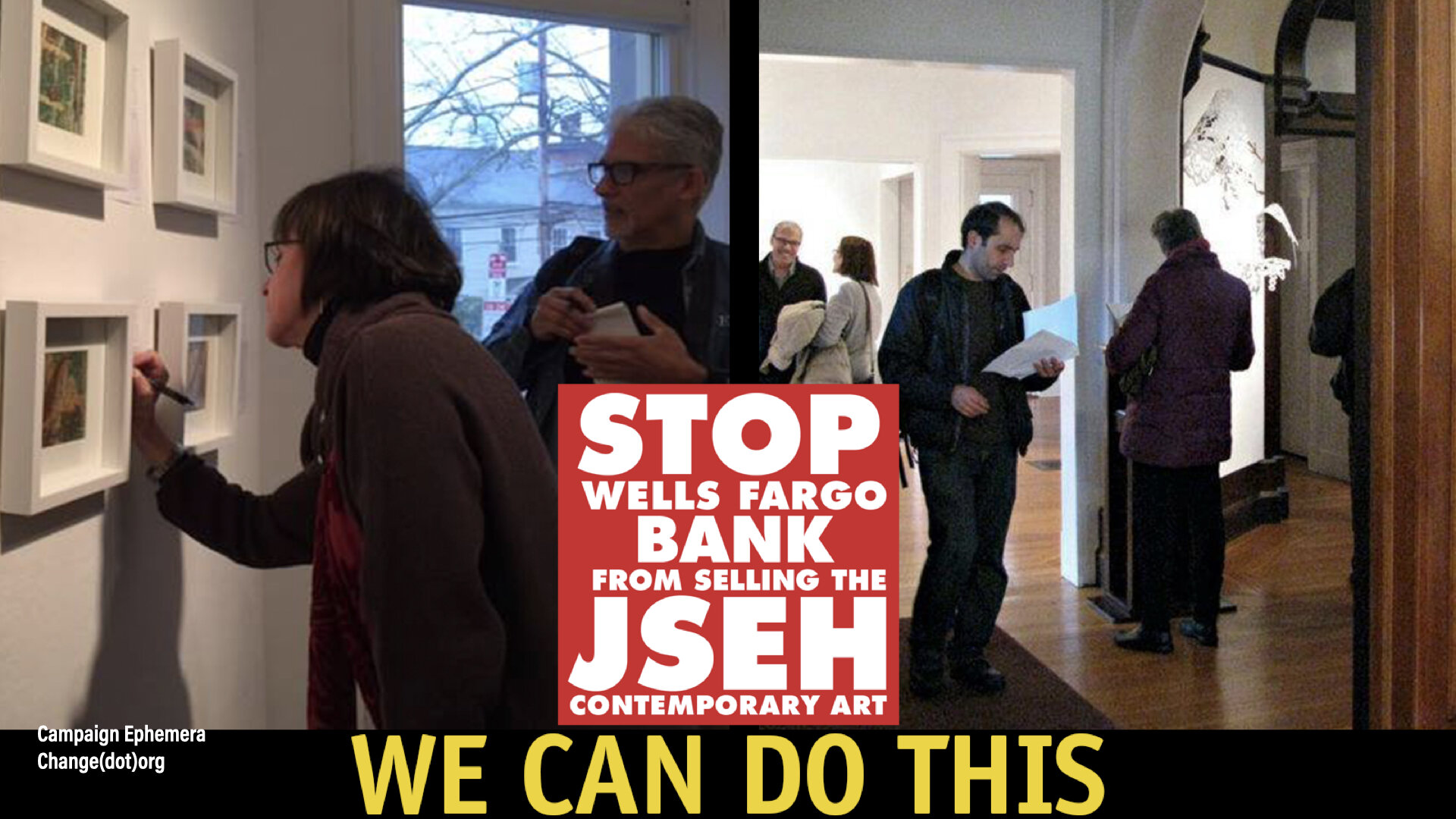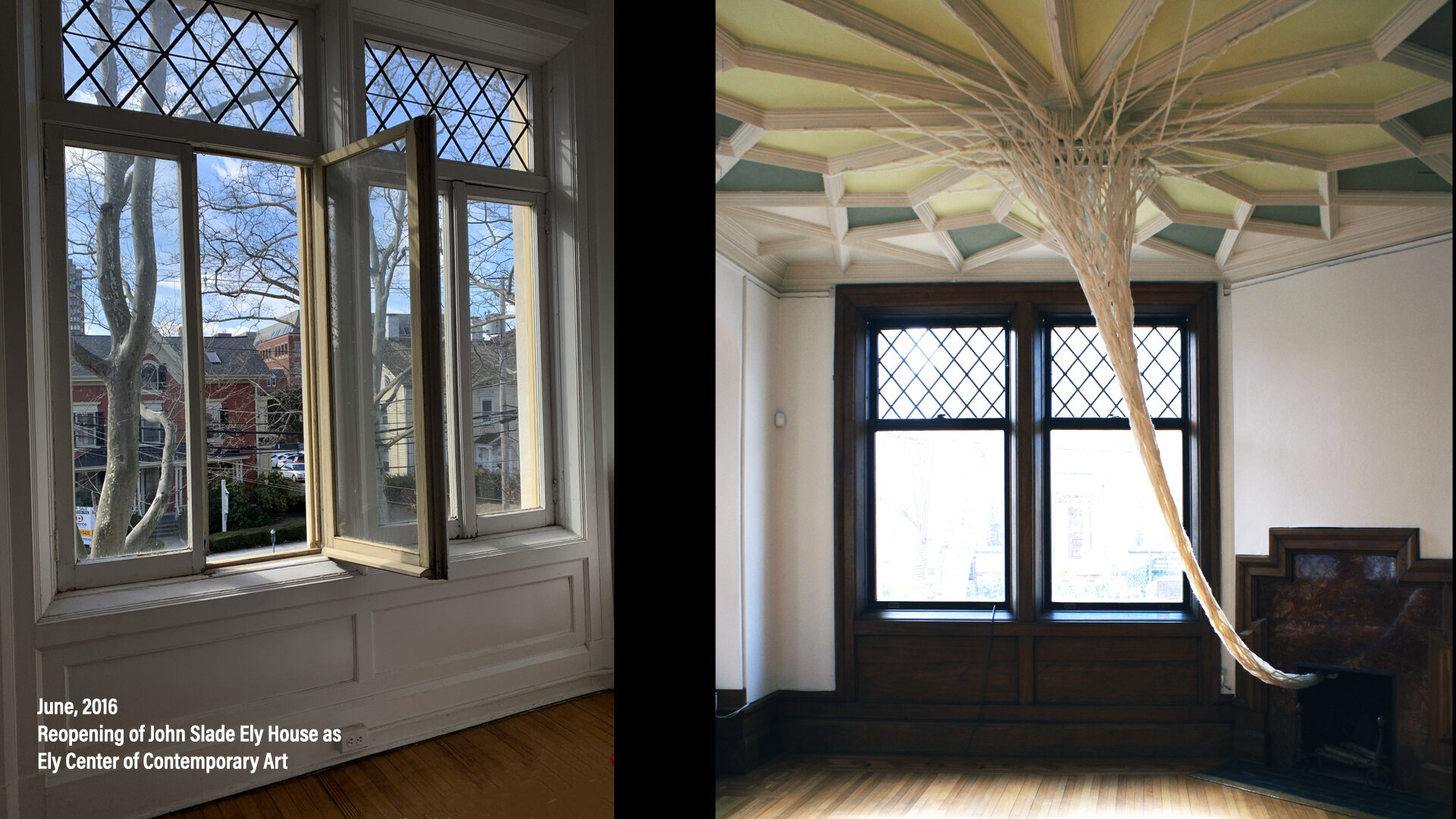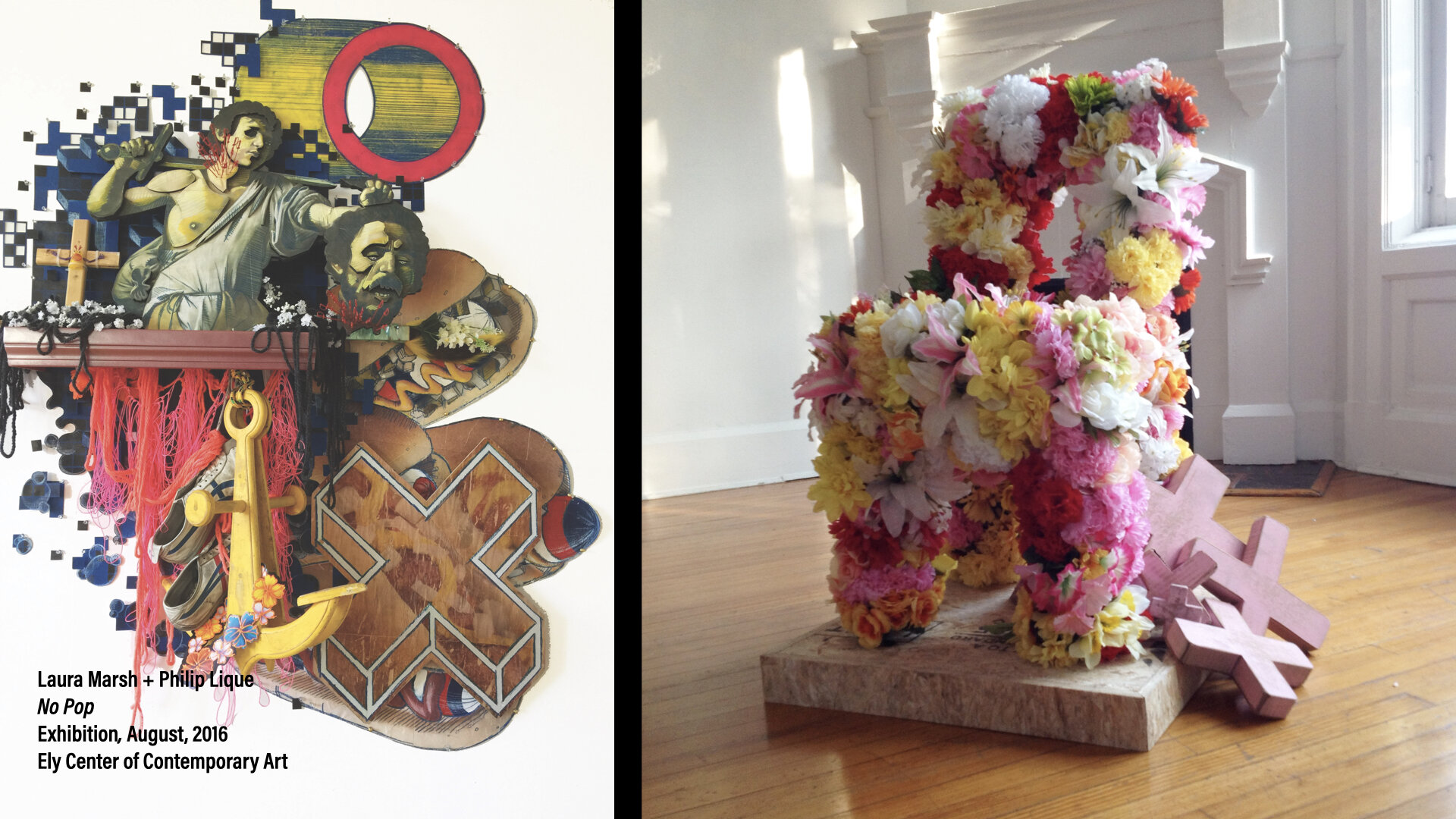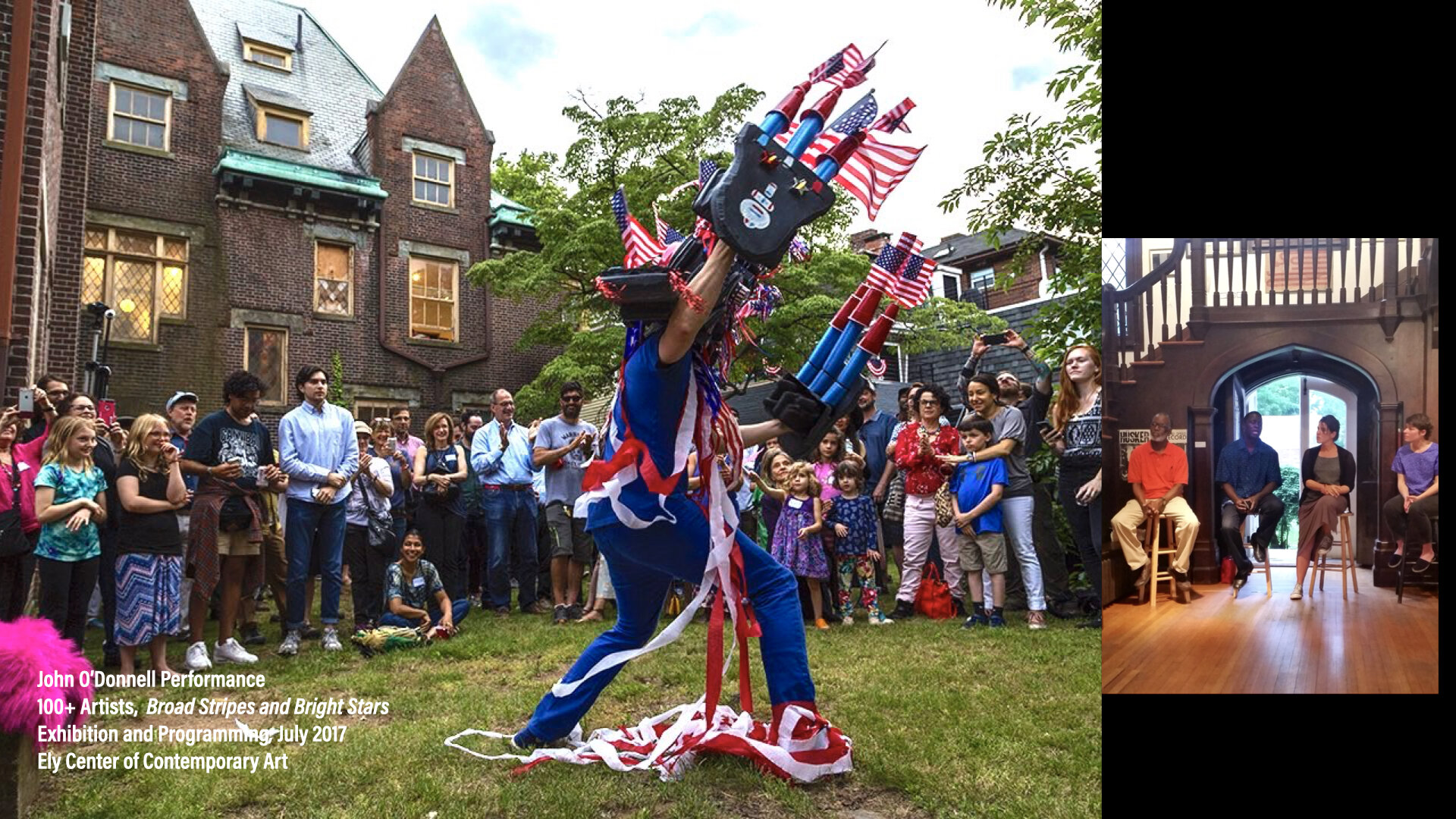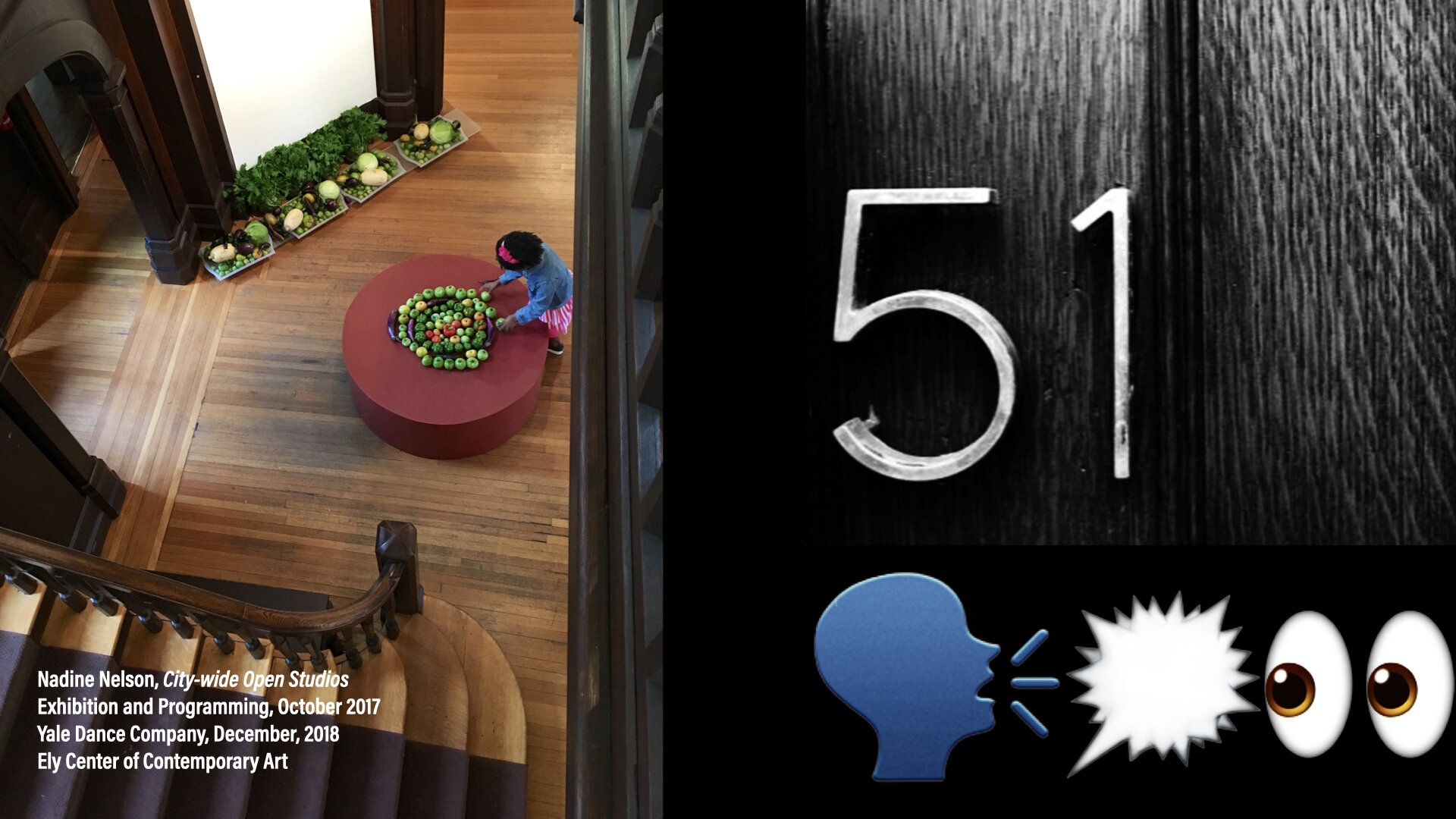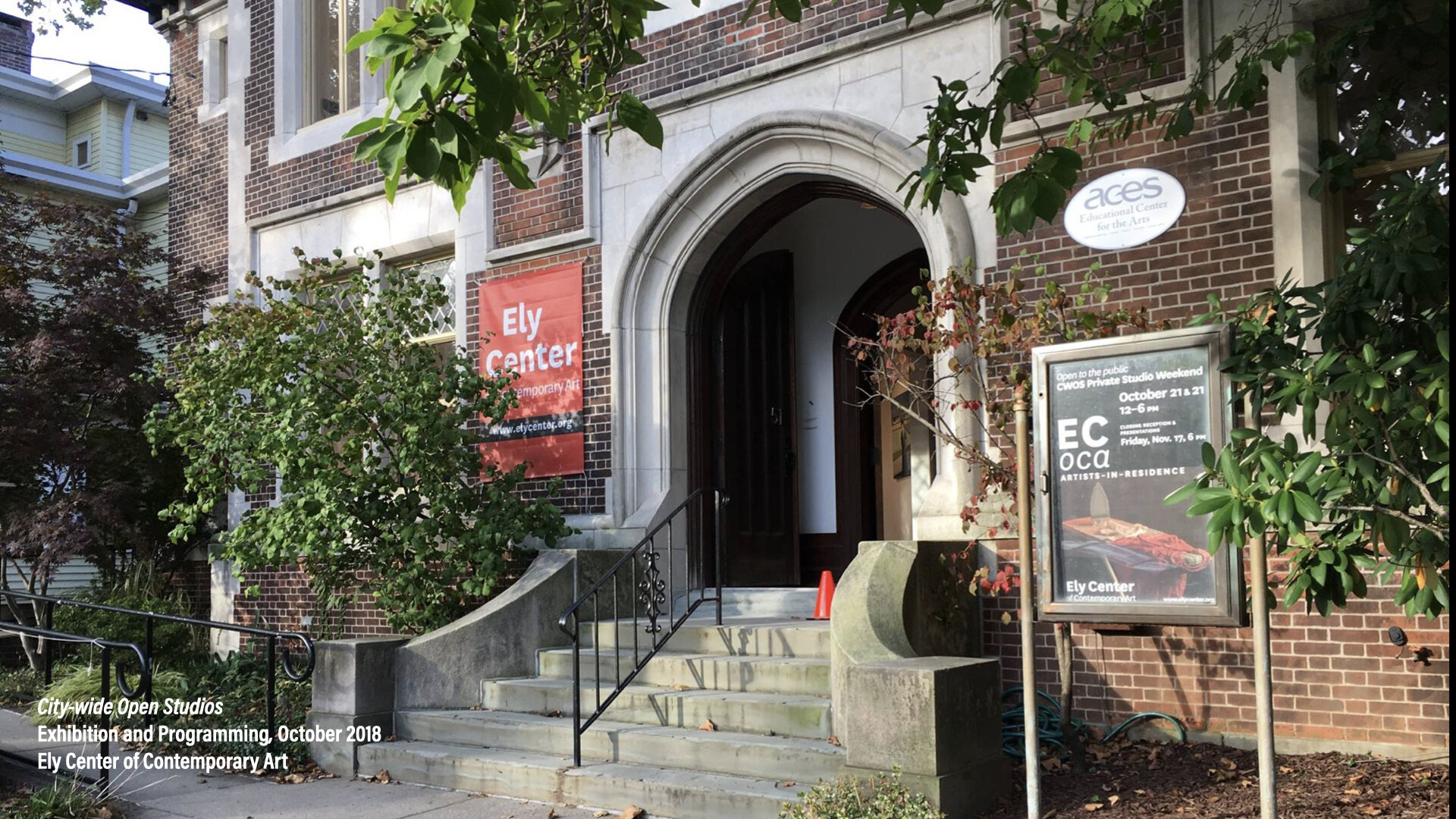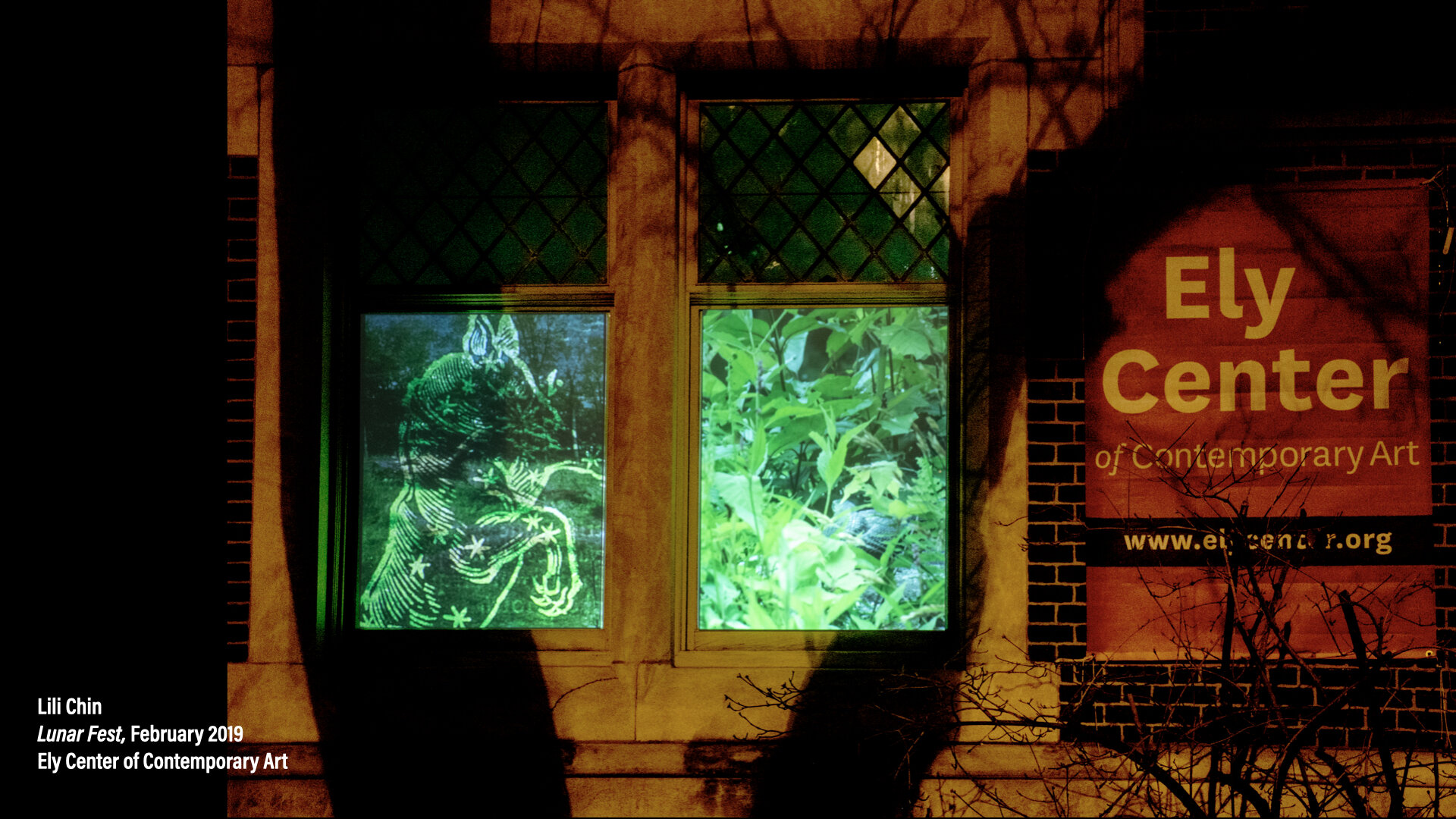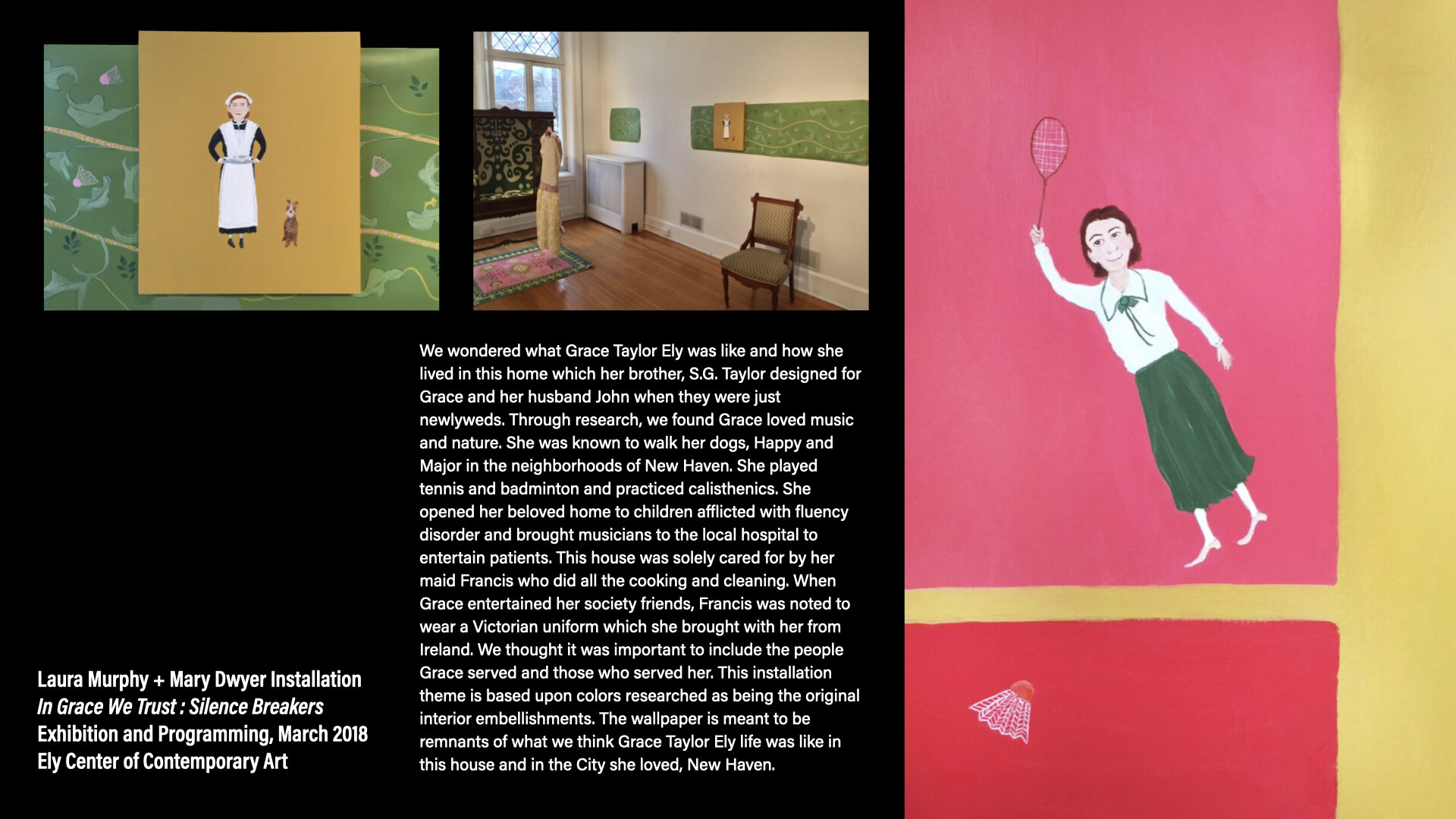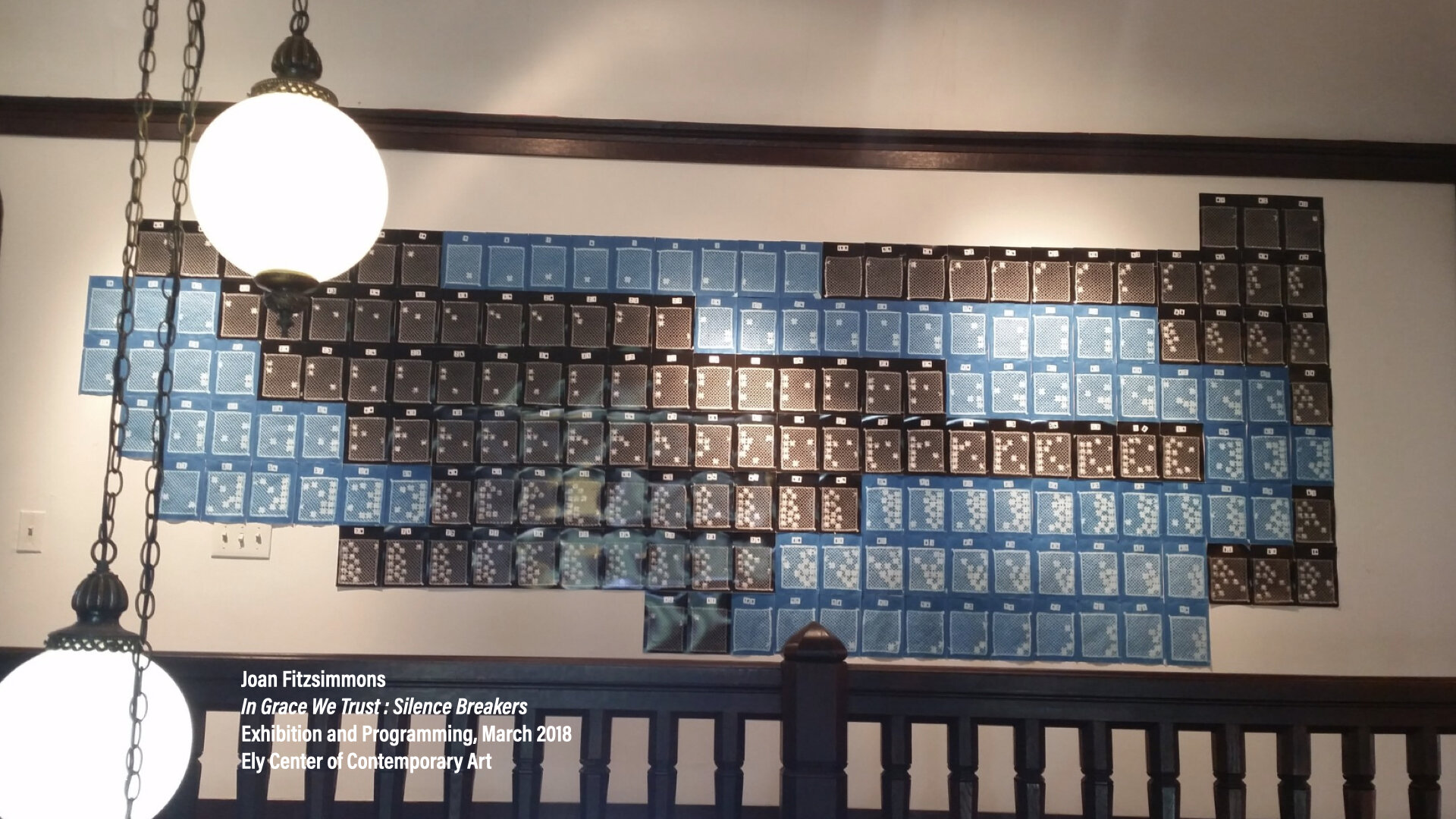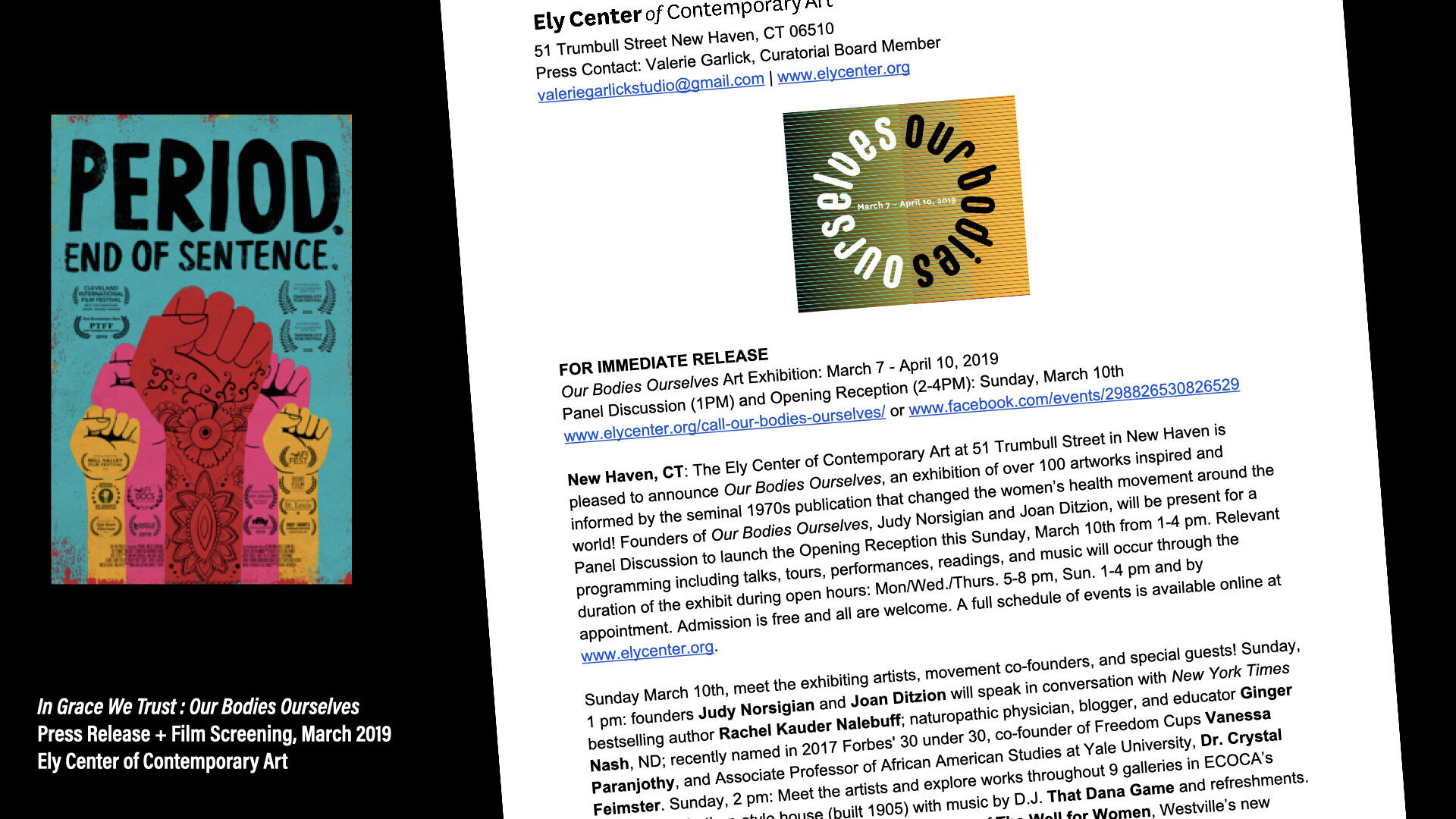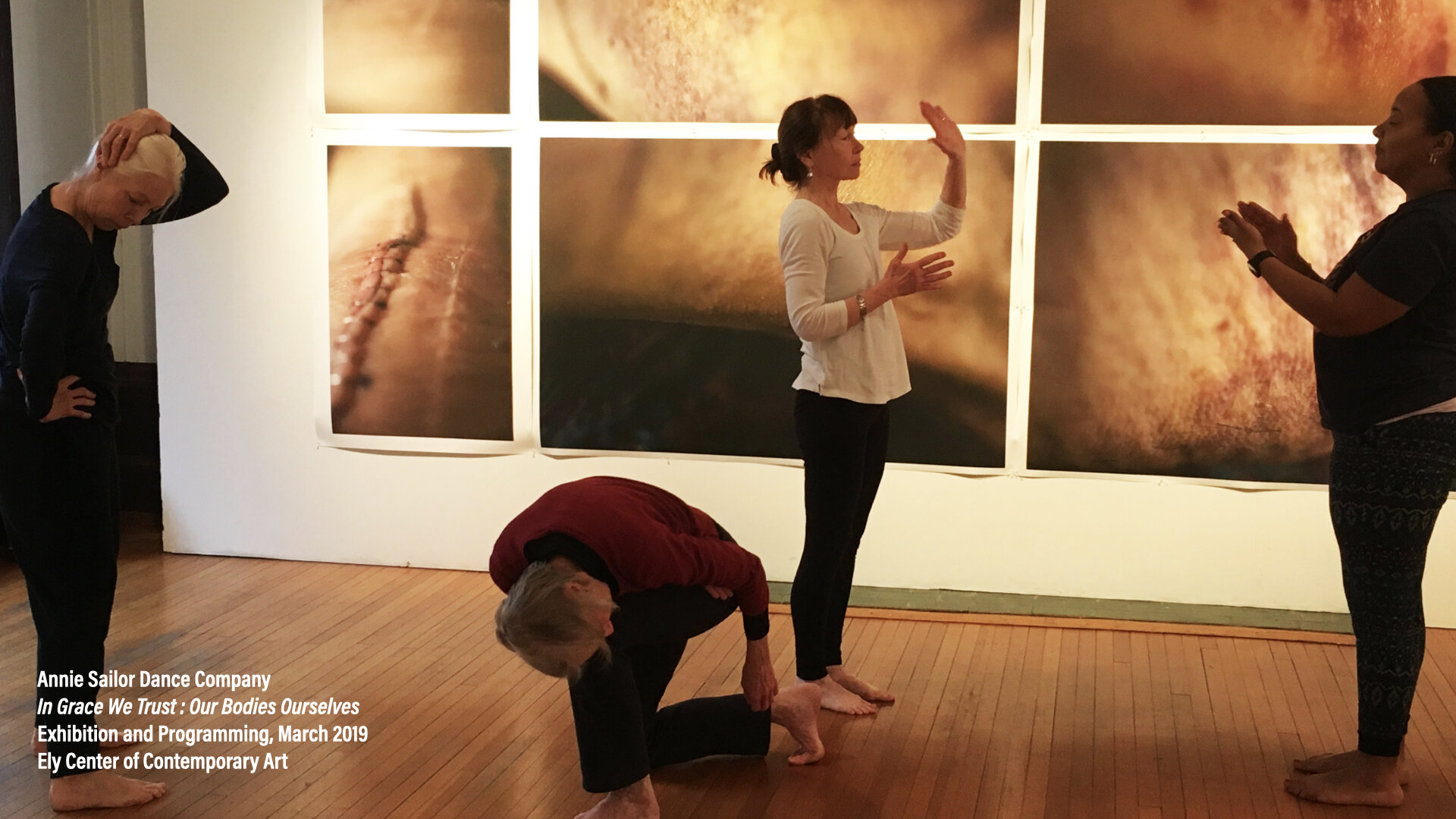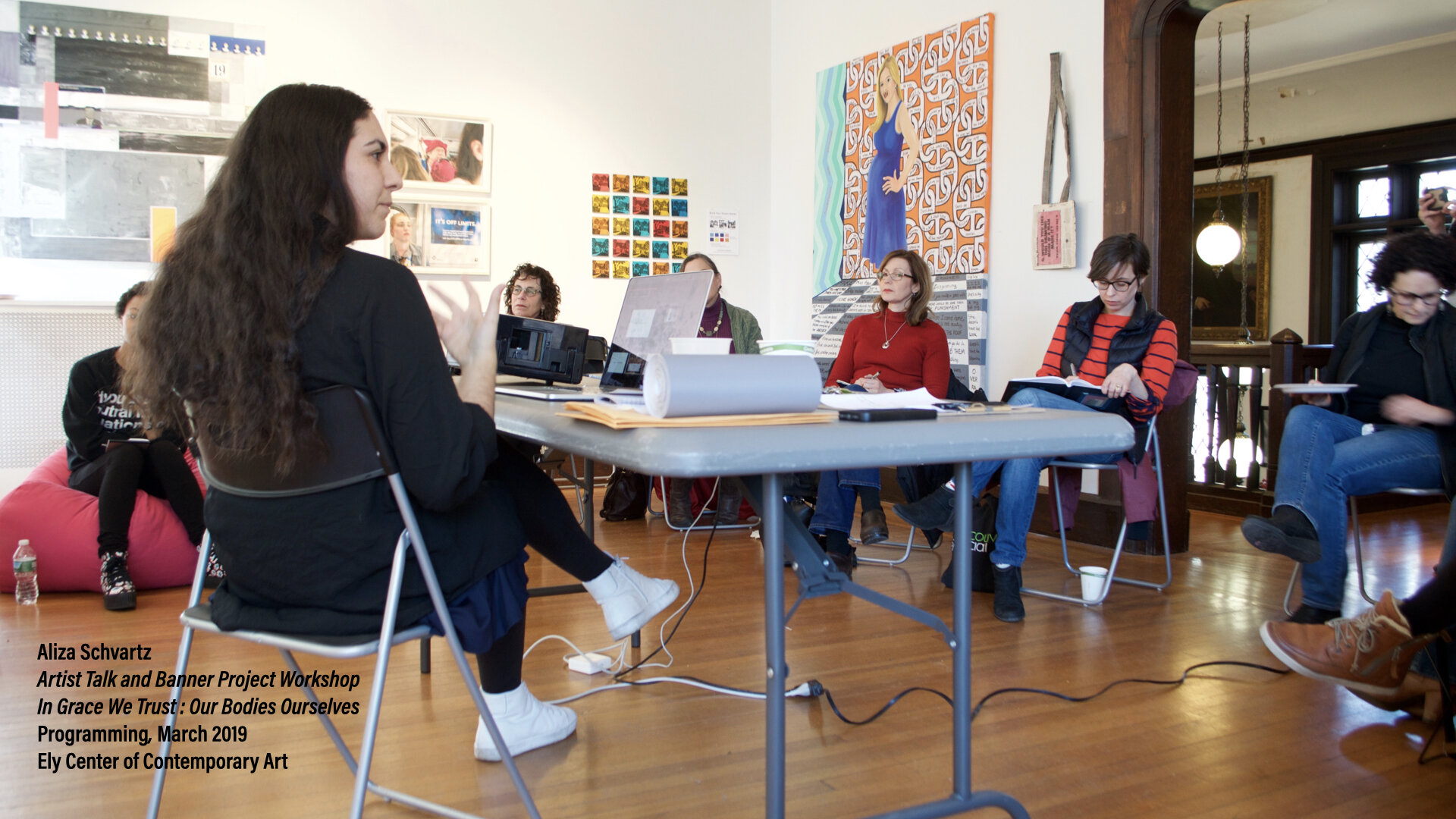Good morning everyone. I want to start by thanking Alex for putting together our panel.
My presentation covers research I’ve been pursuing since 2015. It began with an urgent campaign to save a New Haven art center where I had been a curator 30 years before. And that fall, I started a design commission for the Ethnic Heritage Center’s Walk New Haven Cultural Heritage Project. And somehow simultaneously, I started a full-time teaching position.
The design project entailed creating a print and web campaign for a few neighborhood tours. The Lower Dixwell content was where I learned about Hannah Gray, a woman who had left her home for the public good. Her philanthropy modeled that of Grace Taylor Ely, the woman whose home I was leading a campaign to save. I found myself thinking about how these women’s gifts had changed New Haven.
Hannah was an African American who worked as a seamstress and laundress in the 1800s. She was involved in the abolitionist movement and supported the A.M.E. Zion Church with her modest income. Upon her death March 15, 1861, she bequeathed her home to be used as a safe haven for black women who needed shelter and care. While her will did not provide funding to support her testamentary wish, her generous spirit has inspired others to continue its mission to this day. The Home operated at 172 Dixwell Avenue into the early 1900s. It began to struggle financially in 1904 when members of New Haven’s Twentieth Century Women’s Club stepped in. The Club was a group of African American women with an interest in literature—it was essentially a book club. They ran the home until 1920 when others took it over. Financial problems developed again in 1996 at which time community came together to ensure its future.
On the other side of New Haven proper and a century later in 1959, Grace Taylor Ely bequeathed her home at 51 Trumbull Street to be an art center. A suffragette and widowed in the early 1900s, Ely had a passion for art and giving. A year after her home was built by her architect brother, SG Taylor, her husband, Dr. John Slade Ely, died tragically. In his name, Grace left an endowment to fulfill her wish for a place where the arts could thrive. Absent the pressures of typical arts organizations to fund-raise, it blossomed into a beloved space to engage with contemporary art within its beautiful Elizabethan-detailed galleries. Around it grew an arts district for 54 years until the summer of 2015 when the Trust informed a few stakeholders that they intended to shutter the art center.
Market forces, poor, neglectful stewardship, and other factors placed Grace Ely’s gift in an uncertain predicament. The only Trustee, Wells Fargo Bank, intended to close the building, sell it, and transition the trust from operational to grant-making. At a closing party for the Center, two former curators and I hatched a plan to halt the sale. We spent a year writing letters, attending court conferences, became a 501c3, and applied for a grant from the John Slade Ely Trust to lease the building from the new owners. In the end, we had neither won nor lost. In June of 2016 the Ely Center of Contemporary Art opened as New Haven’s oldest and newest arts organization.
6 years later and called ECOCA now for short, our mission is to ensure the continuation of the historic activities presented at the John Slade Ely House Galleries and to preserve its essential identity as a synergistic charge for the expression, engagement, and germination of culture-makers and their audiences in Greater New Haven. ECOCA promotes a just and healthy center by working with a broad representation of arts organizations and cultural groups.
My research, put on hold due to COVID, is looking at women through the lens of Ely and Gray who willed their homes to support and lift the spirit of community for the greater good. However, these extraordinary women are underrated figures with little written about them. The link between Grace and Hannah is simply the fact that they were women living at a time when it was uncommon to leave a mark. I hope to find evidence, dust off the stories, and reexamine the legacies they left here in this diverse City where they are still making an impact. They can be models for women today who want to leave new marks.
These stories need to be collected and told to new generations. Gray and Ely’s gifts helped to anchor and nourish their neighborhoods and theirs are not the only examples to be found in New Haven. In 1866, a group of women established a shelter for homeless and often pregnant young women in need of either temporary or permanent housing. Known as the “Home for the Friendless” it later changed its name to a benefactors sister’s. The Mary Wade Home in Fair Haven has another story to tell.
To honor Grace Ely, ECOCA initiated a yearly exhibition in conjunction with Women’s History month in March under the title “In Grace We Trust.” Curation and programming are designed to ignite dialogues that address ideas of tradition and change — a nod to the past as we confront current societal challenges and rise together to create new narratives. In 2019, we took inspiration from Our Bodies Ourselves, the pivotal book first published in 1970 in Boston, on the cusp of the 2nd wave of feminism. In 2020, while closed due to COVID, we launched calls for artists and debuted “Digital Grace”, a virtual exhibition space that pays homage to Ely’s interest in emerging contemporary practices. Collecting women’s stories of home and finding ways to provoke its meaning is just one of the ways we can meet this goal.
https://elycenter.org
https://walknewhaven.org
http://hannahgrayhome.org






